This is a smart power strip from the company Shelly, a very interesting new device to control different devices from your phone and with automations, and today we are going to discover all the details.
Why does Shelly Power Strip Gen4 have this price?
Shelly designs quality products and its smart power strip is an innovative device with 4 sockets, LED indicators, consumption measurement and different communication protocols: Zigbee, Wifi, Bluetooth and Matter.
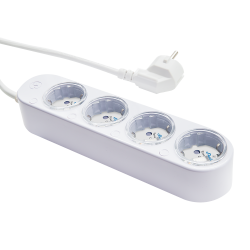
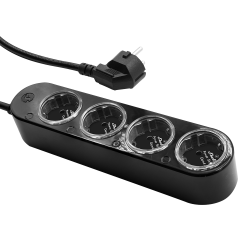
Advantages and disadvantages of the Shelly Smart Power Strip
Advantages
- Different technologies: You can use this smart power strip via WIFI, Zigbee or Matter, meeting all the needs of the present and the future.
- Compatibilities: Shelly offers devices compatible with a wide range of ecosystems: Amazon Alexa, Google Home, Homekit, Home Assistant and more.
- Free Shelly App: You can use Shelly Power Strip Gen4 with the Shelly App with no monthly fees.
- 12A per socket: You can manage electrical devices up to 12A per socket and 16A in total.
- Consumption measurement: In addition to being able to control 4 electrical devices, you can also measure individual consumption in real time.
- LED indicator: Depending on the energy consumption of each device plugged in, you have a different colour in the LED indicator of each socket, so you can see in real time if it is low or high and you can even customise these colours.
- Timer: You can program schedules for activation or deactivation of this smart power strip.
- Protection: This smart power strip has overheating, overvoltage, overload and overpower functions.
Disadvantages
- Price: As it is a device with different functions and technologies, its price is high.
- Lack of USB ports: There are no USB ports on this smart power strip.
Tutorial on how to use the Zigbee, WiFi, Bluetooth, Matter Shelly power strip.
Shelly Group has recently become a European unicorn: the Bulgarian home automation company exceeds a $1 billion valuation by 2025.

Its success is due to a wide range of devices with an excellent price/quality ratio and Shelly’s latest trend is the launch of Gen4 devices that integrate different communication protocols: Zigbee, WiFi, Bluetooth and Matter.
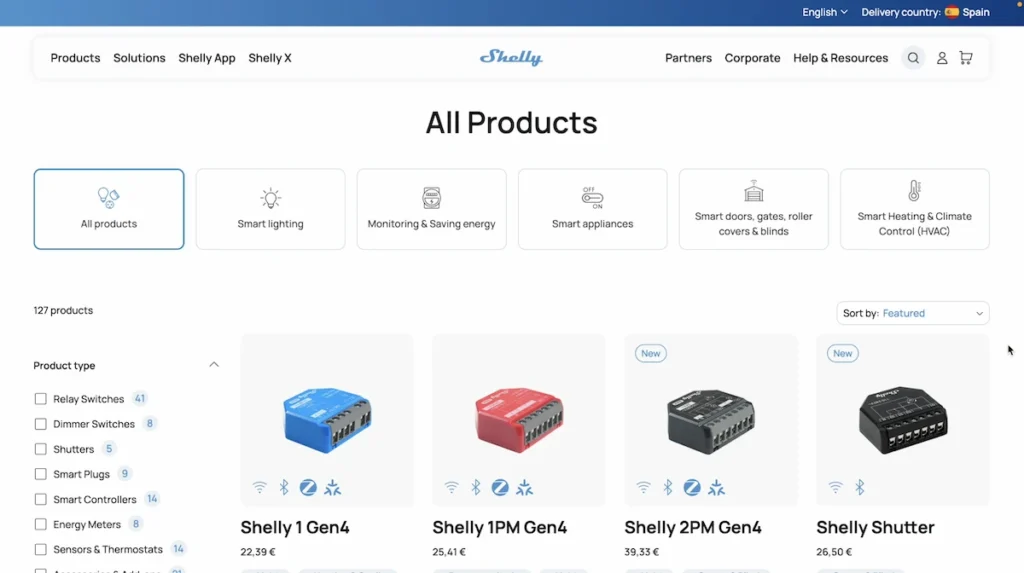
This is the case with this smart power strip called Shelly Power Strip Gen4.
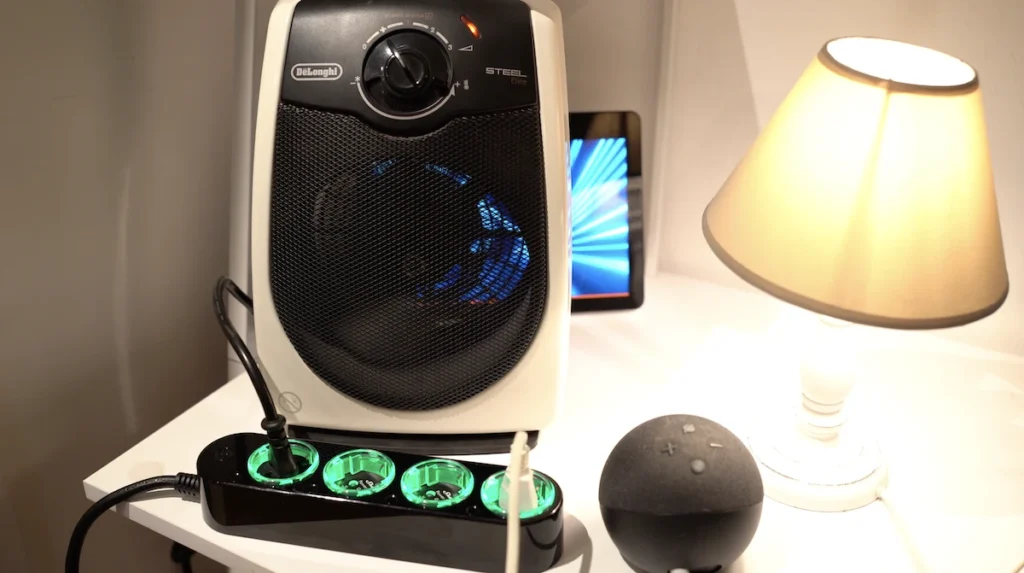
Technical characteristics Shelly Power Strip Gen4
To begin with, if we open the packaging, we have an instruction manual.
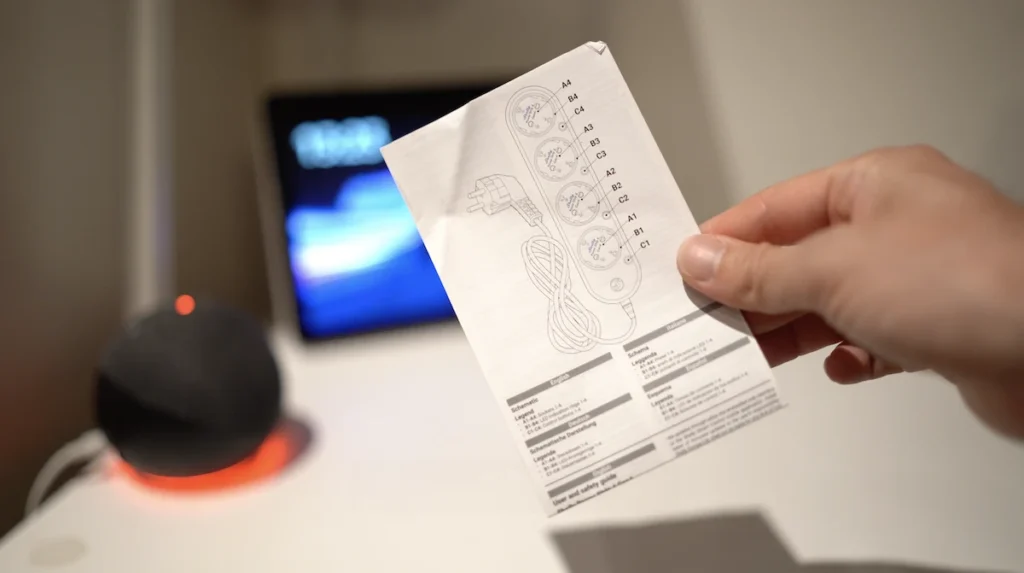
And, of course, we have our smart power strip.
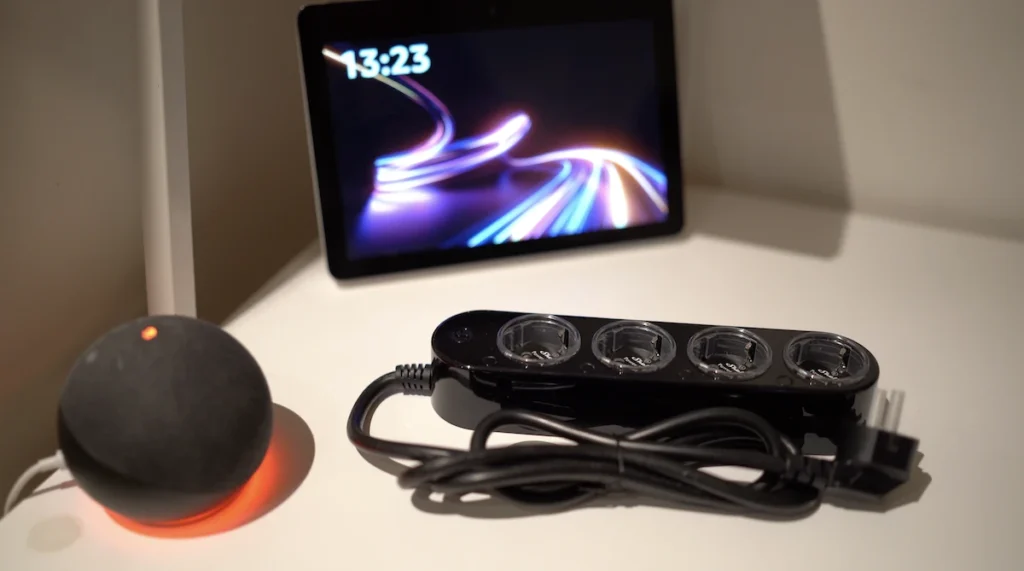
Shelly offers 2 models of power strips in 2 colours: black and white.
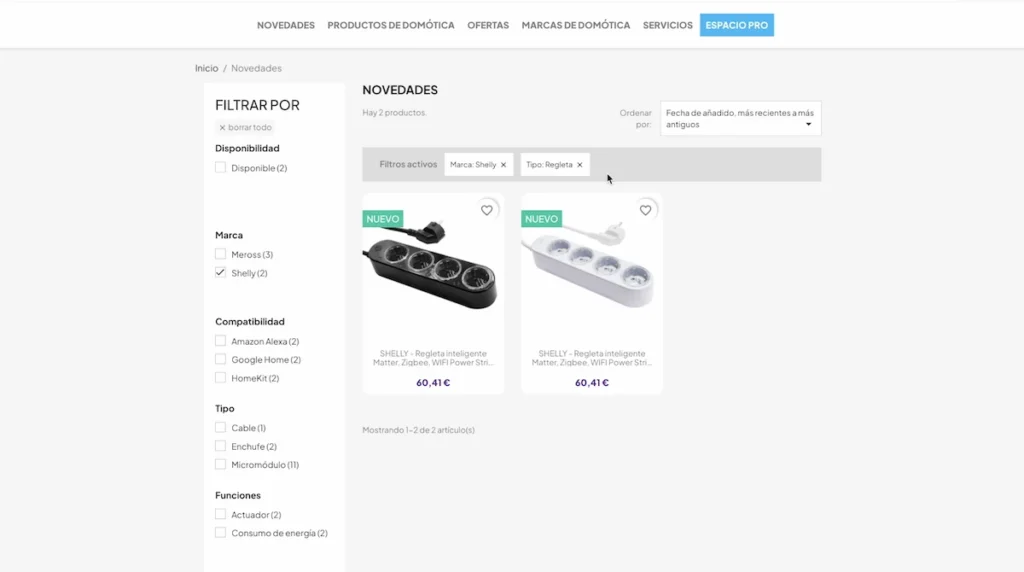
It measures 43 x 237 x 56 mm, weighs 560 g and is made of plastic.
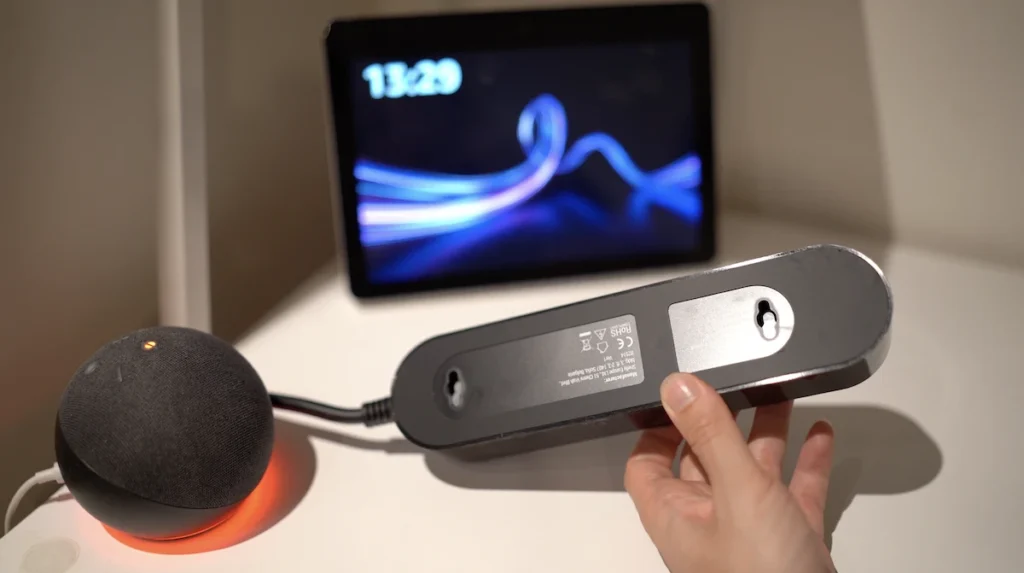
It is a device with a design that I find attractive.
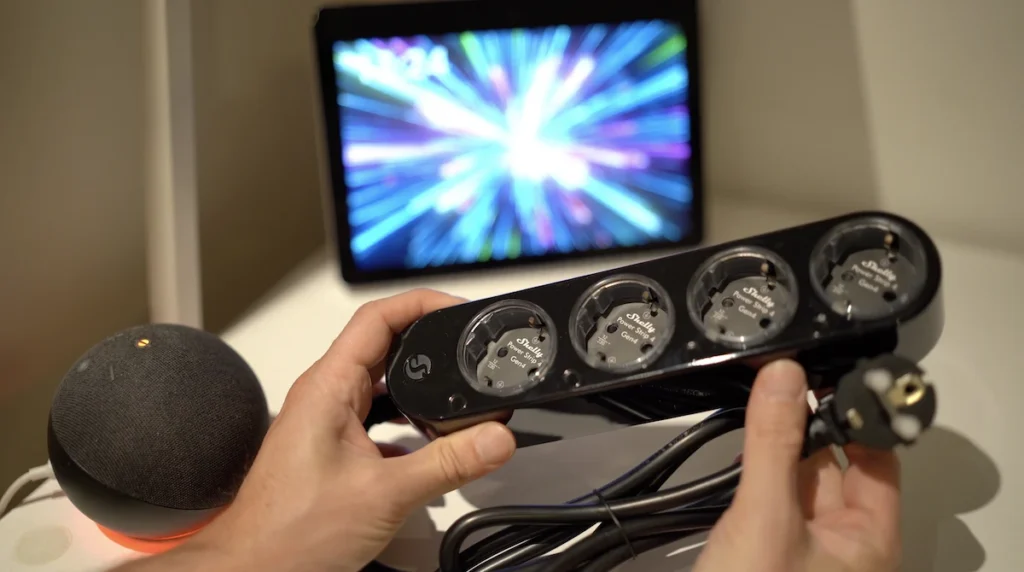
This smart power strip incorporates 4 independently controllable sockets, which is a very practical first detail, given that if, for example, we have 1 socket that we want to activate and 3 that we want to deactivate, it is possible with this device.
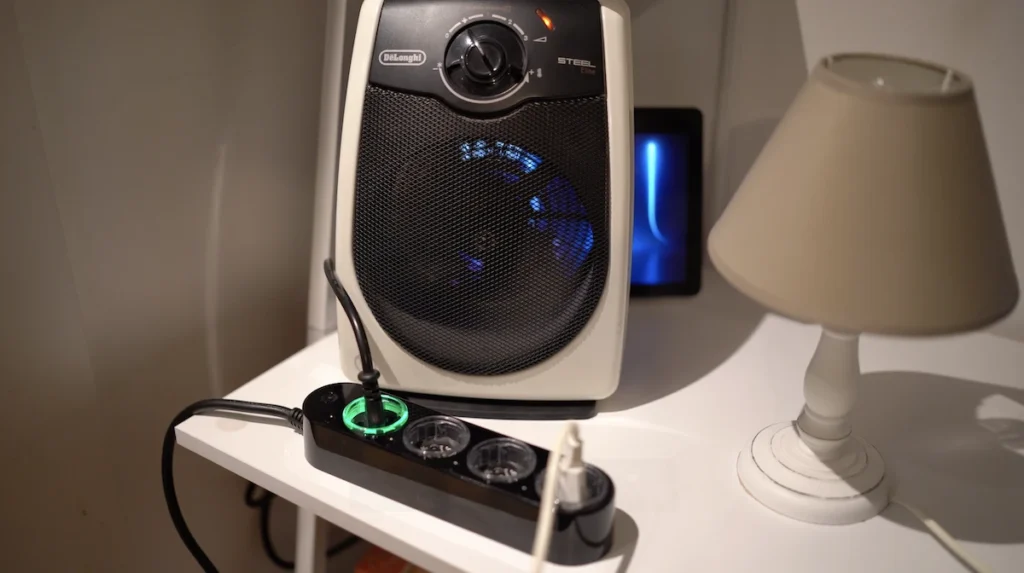
It is interesting to be able to have a smart power strip in some cases. Firstly, for convenience and aesthetics, instead of having 4 individual sockets, we have a power strip that integrates these 4 sockets.

Also, the price of a smart power strip is usually cheaper than 4 individual plugs, and although Shelly has not yet announced a Gen 4 plug, if we compare a Shelly Gen 3 plug which has a price of approximately 23 euros multiplied by 4 would be 92 euros, and with this smart power strip, we have a price of approximately 60 euros.
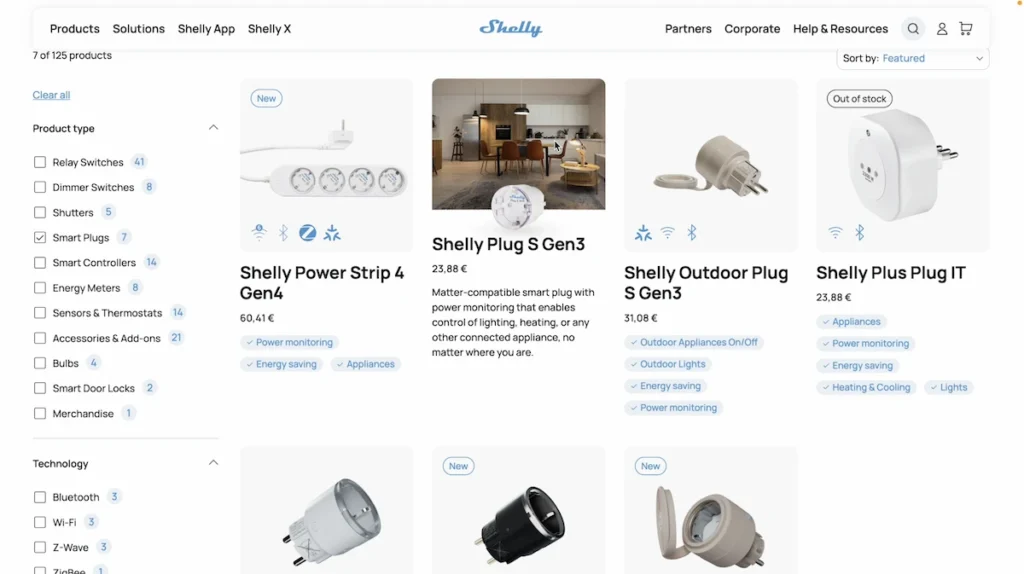
We can manage a load of up to 12 A per socket and a total load of the sockets of 16 A.

It would have been interesting to have additional USB ports that we could also control from our phone.
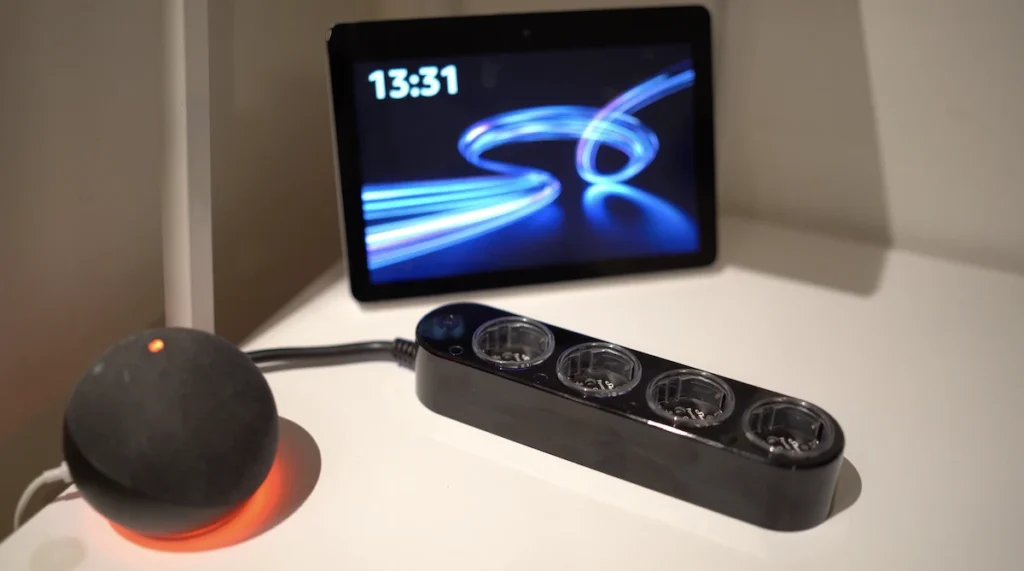
Another interesting detail is having 4 physical buttons that allow us to turn on and off the 4 sockets individually without having to use our phone when we are at home.
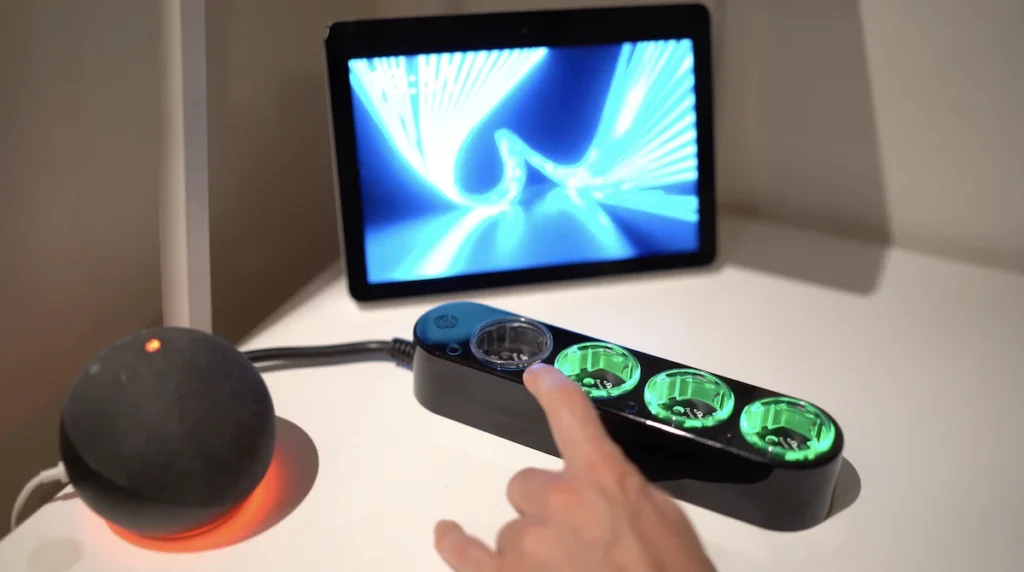
Each socket has an electricity consumption measurement function, so we will know in real time, from our phone, how much each of our 4 plugged-in electrical devices consumes.
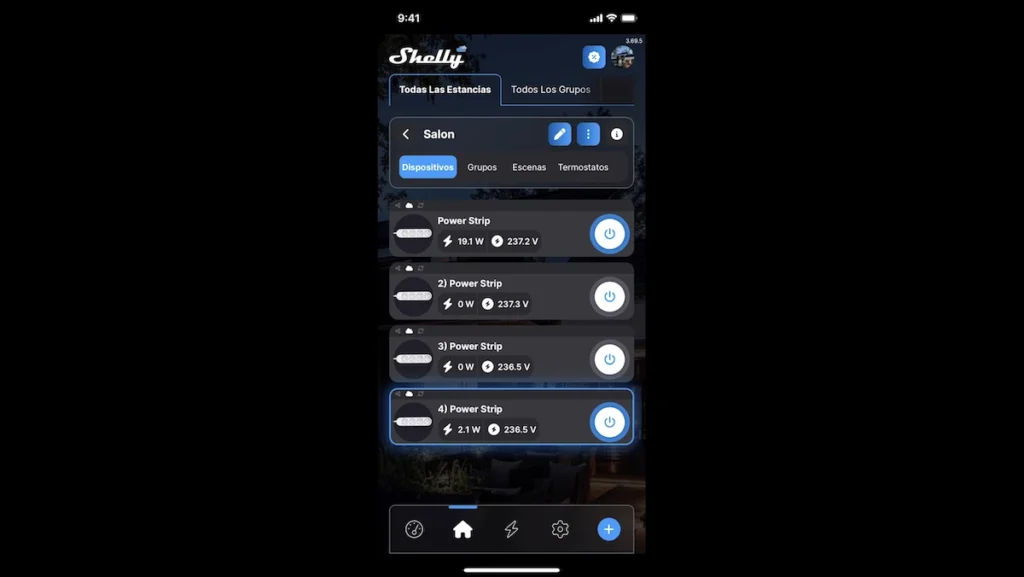
But that’s not all! We will also have a trend of these consumptions with LED indicators, which change colour according to the current consumption.
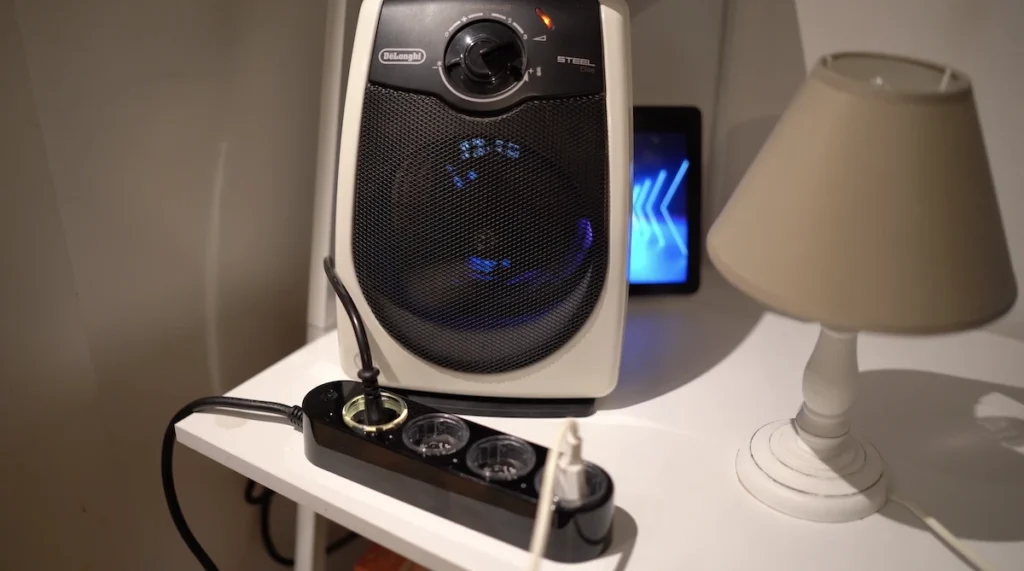
As I mentioned, this smart power strip integrates different communication protocols, being the new technological breakthrough we have with this generation 4 of Shelly.
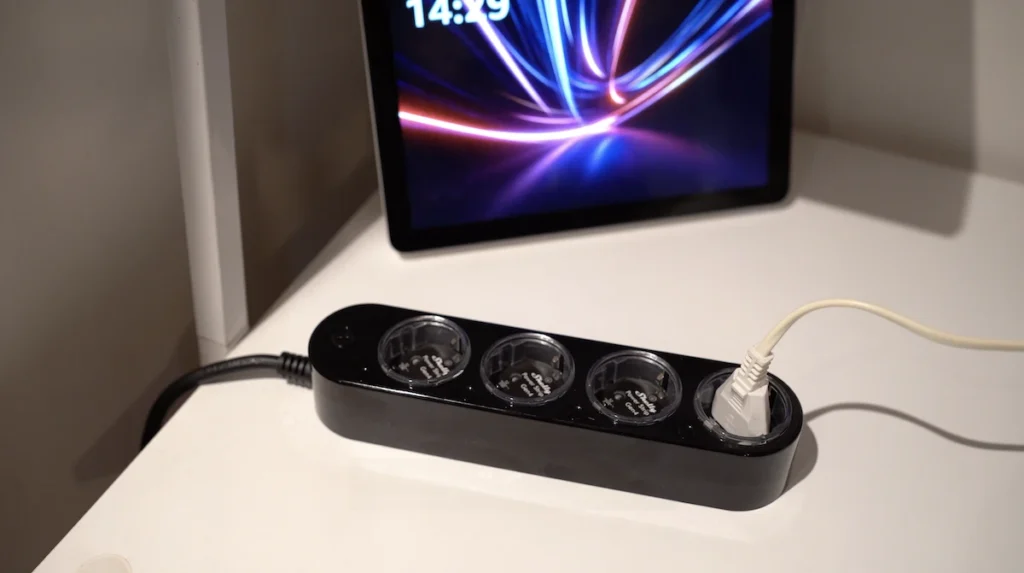
We have Zigbee, WiFi, Bluetooth and Matter, but it should be noted that you must specifically select one. That is, they are not all used at the same time, but you can choose the one that best suits your project in your home.
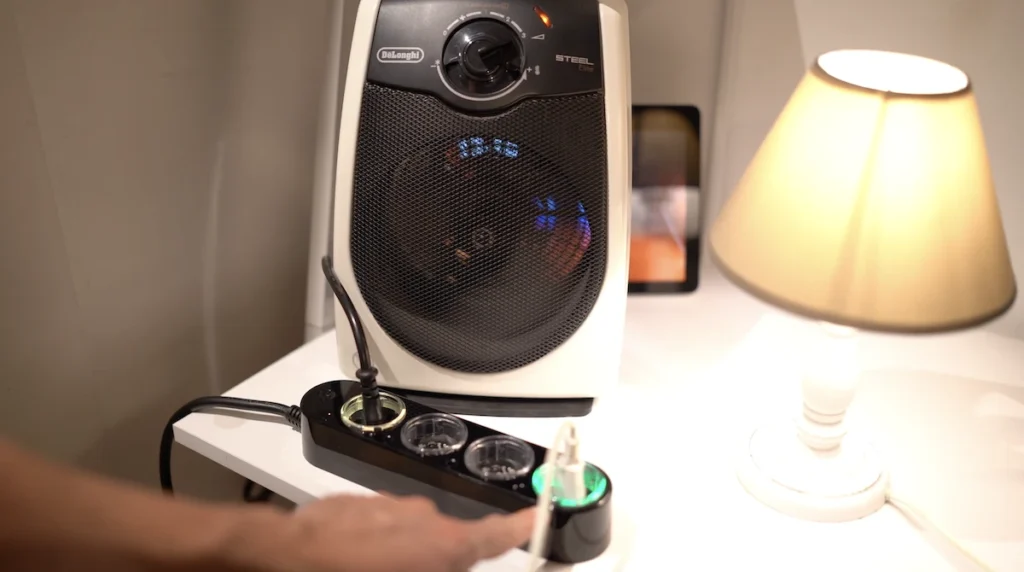
And this is a detail that I think is very interesting in terms of flexibility and evolution of your installation. You can start with a smart home device like this Shelly power strip and use it simply via WiFi, without having to buy a home automation hub or any voice assistant.
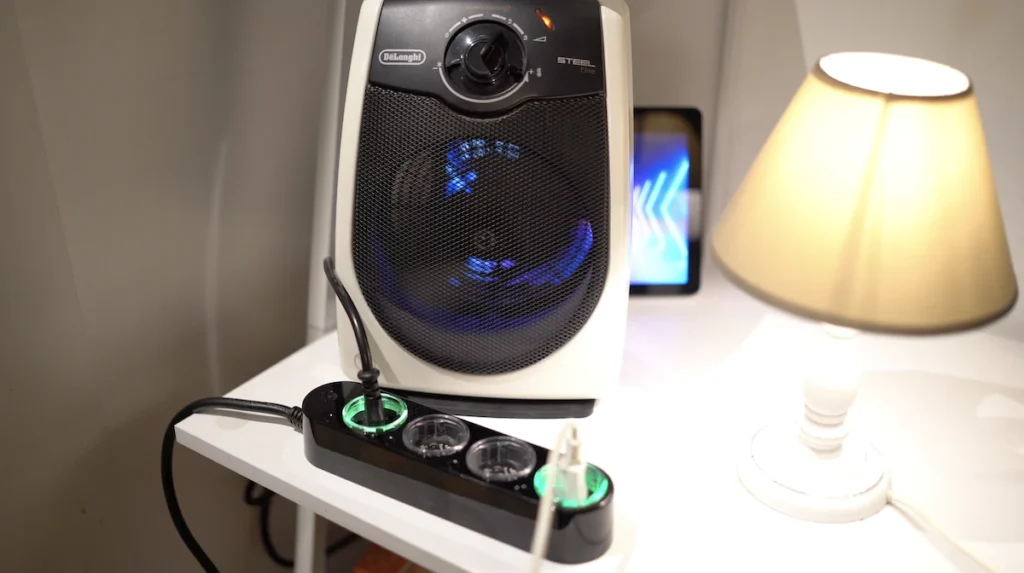
And as time goes by, if you want a more complete installation, you can opt for Zigbee to have a network independent of WiFi, unifying your installation and allowing Zigbee devices to communicate together to form a mesh network.

And in the future, you may want to enjoy the latest developments of the new Matter home automation standard, uniting different ecosystems together.
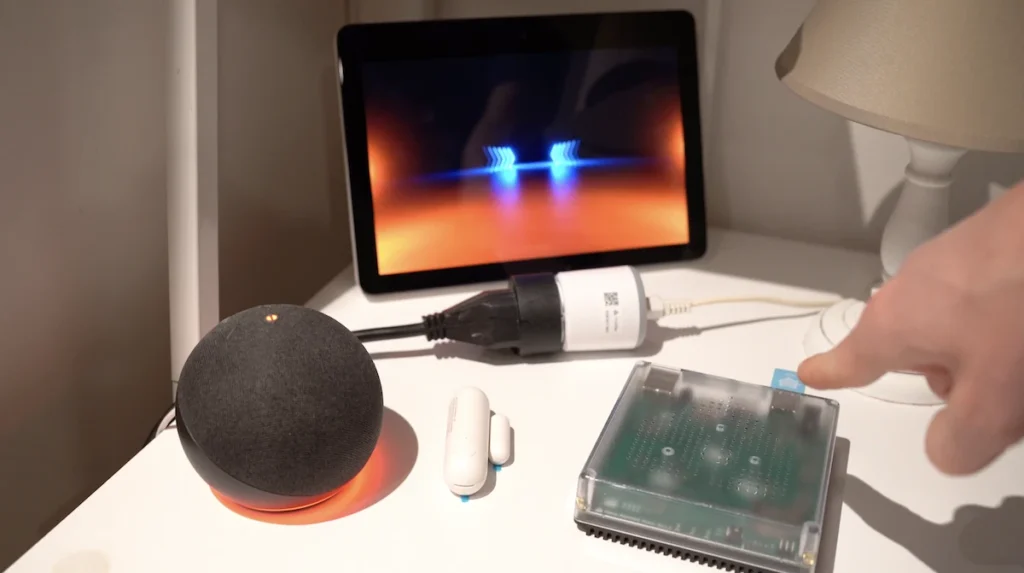
Instead of buying different power strips according to the passage of time and your needs, in this case, with Shelly, you can change the communication protocol of your device at any time.
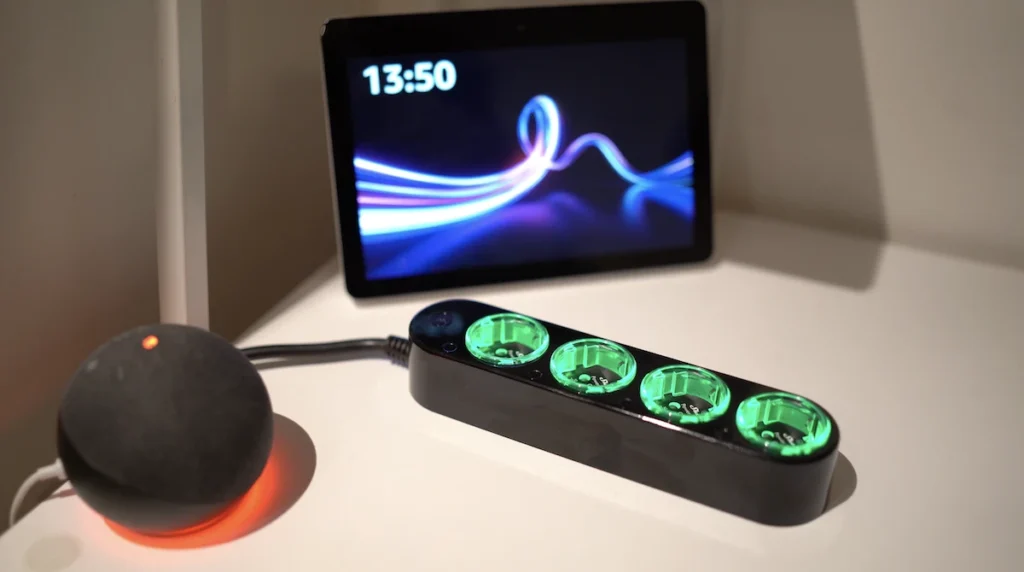
This power strip has a 1.5 m cable to plug it into a socket in your home and its own consumption is less than 1 W according to the manufacturer.
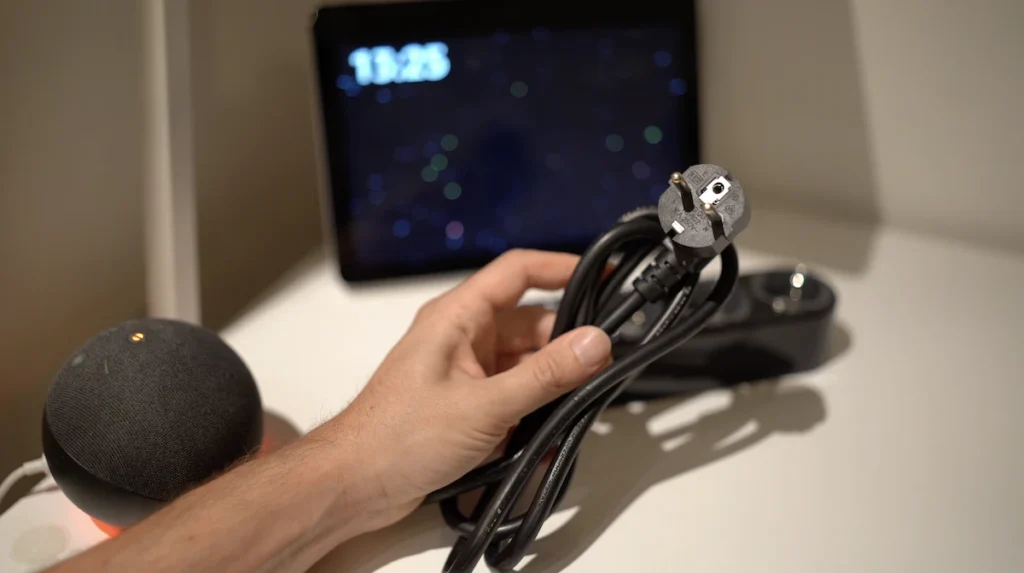
It is protected against overheating, overvoltage, overload and overpower.
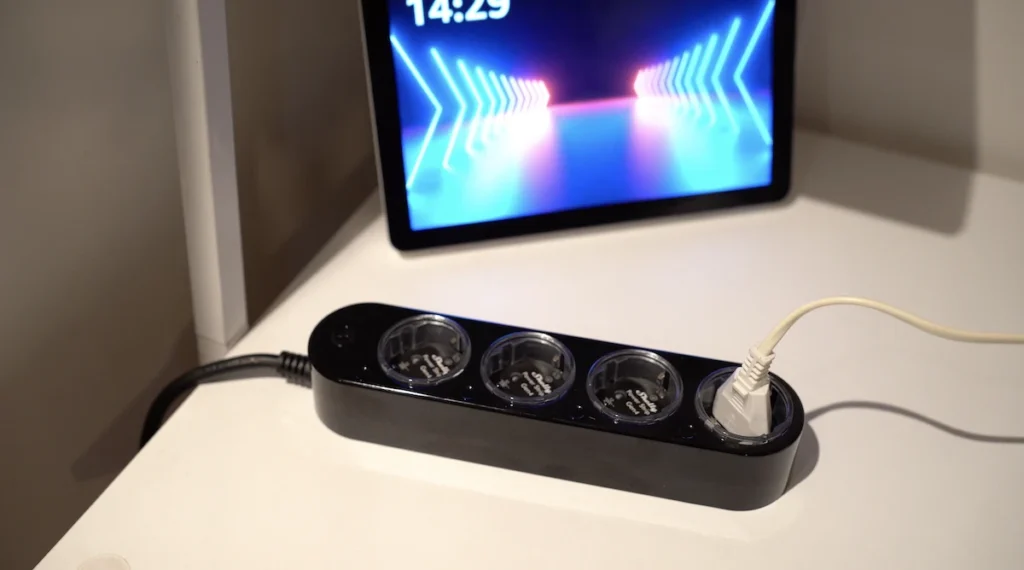
How to install the Shelly smart power strip
In order to use your smart power strip, you simply plug it into a power socket in your home and take into account the direct range to your internet router in the case of WiFi use, generally between 10 to 15 metres with obstacles in your home, although the manufacturer indicates up to 30 metres.
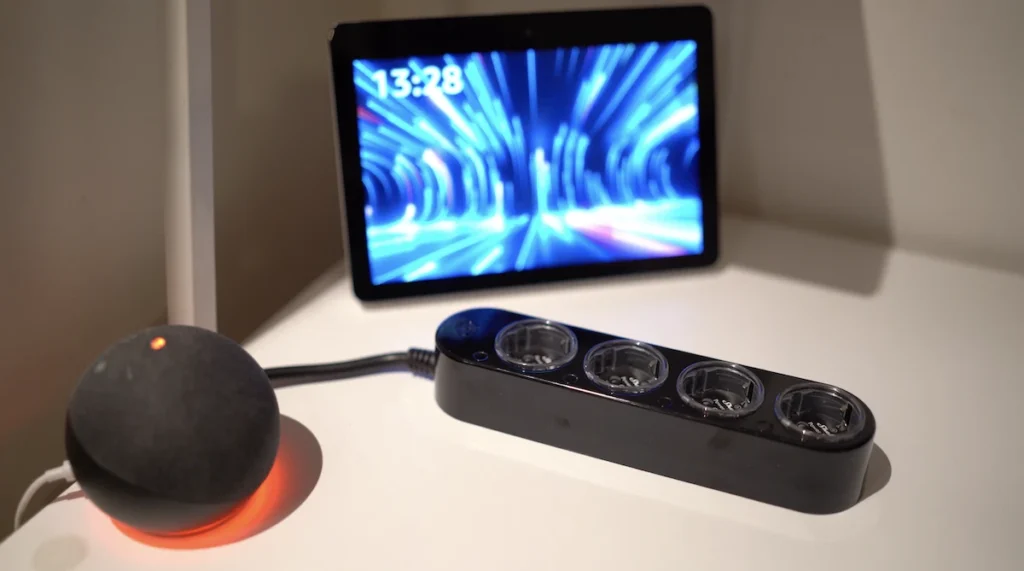
In the case of using this Zigbee smart power strip, you should generally have it within 10 to 15 metres of your Zigbee home automation hub or a Zigbee router (i.e. another Zigbee device connected to the power supply that can repeat the signal), although the manufacturer indicates a range of up to 100 metres indoors, but this is usually unobstructed, so at home, this range is usually reduced.
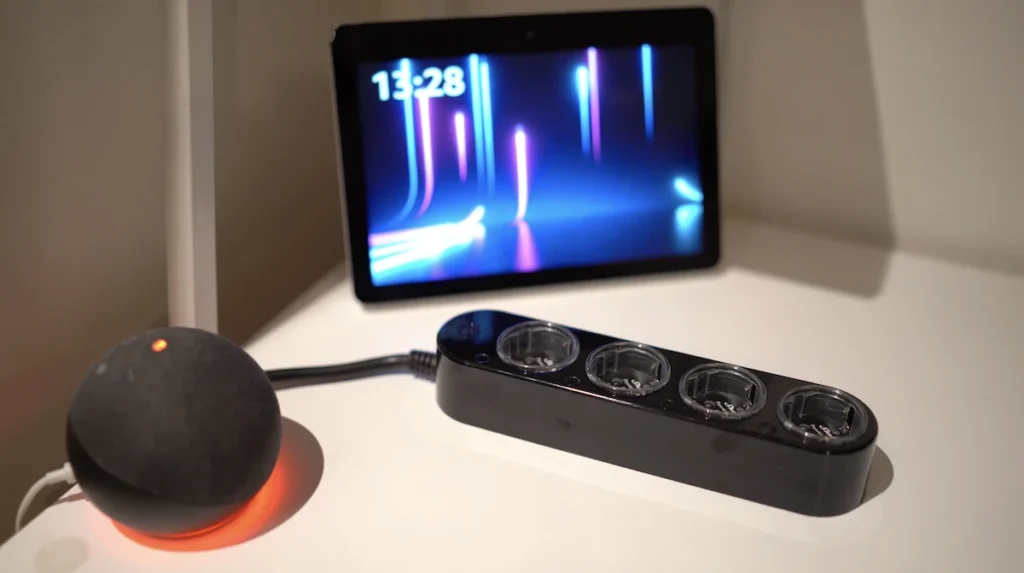
And now that it’s plugged in, you’re going to be able to configure it.
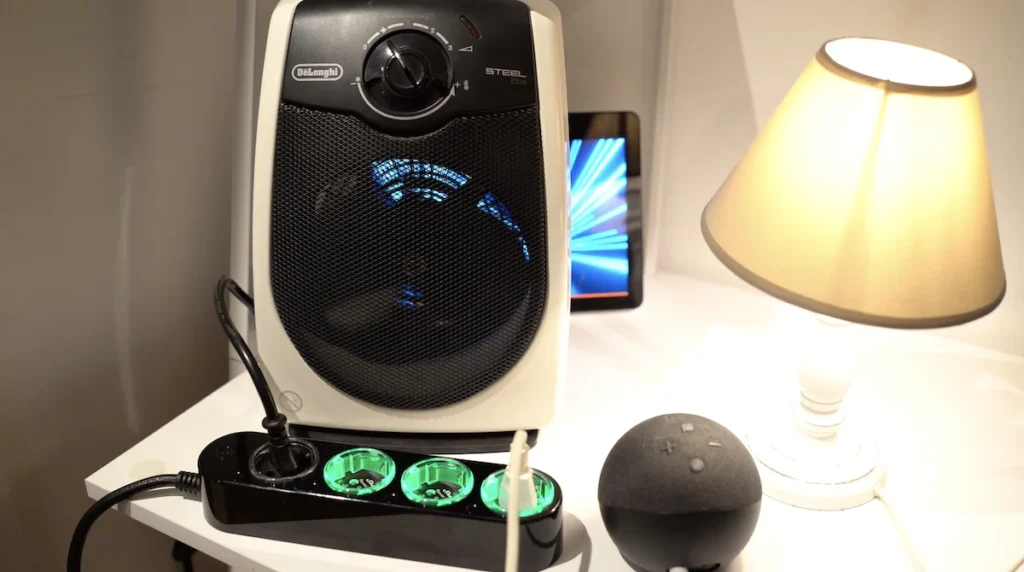
How to use the Shelly WiFi Smart Power Strip
By default, this Shelly Gen4 smart power strip is on WiFi. As I mentioned, this is ideal when you are starting from scratch in your home with smart devices, as you don’t need any additional home automation hub.
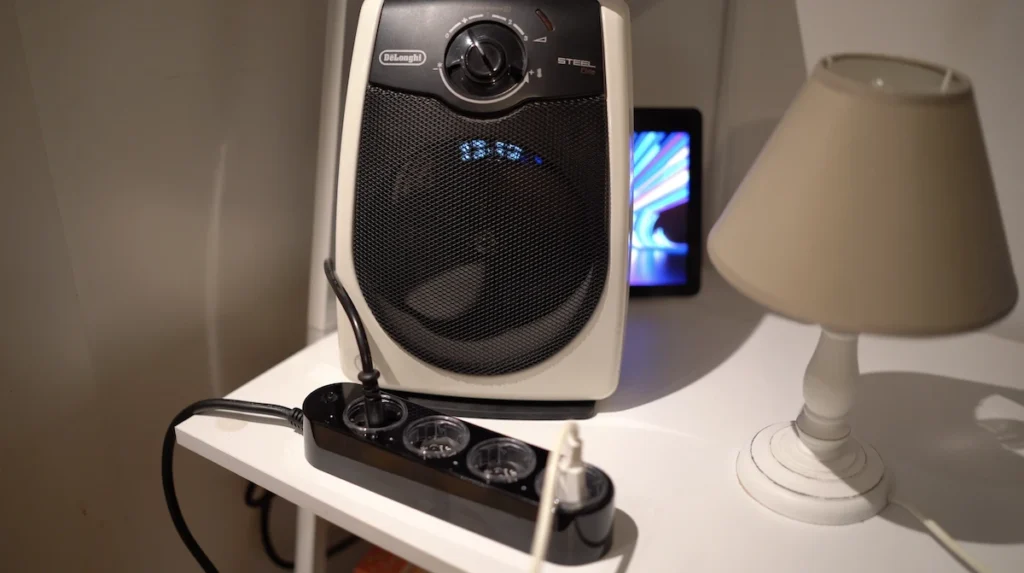
You simply buy this smart power strip and, connected to your WiFi network, you will have control from anywhere in the world with your phone. But unlike many other brands on the market, Shelly’s WiFi devices also work locally, without the internet.
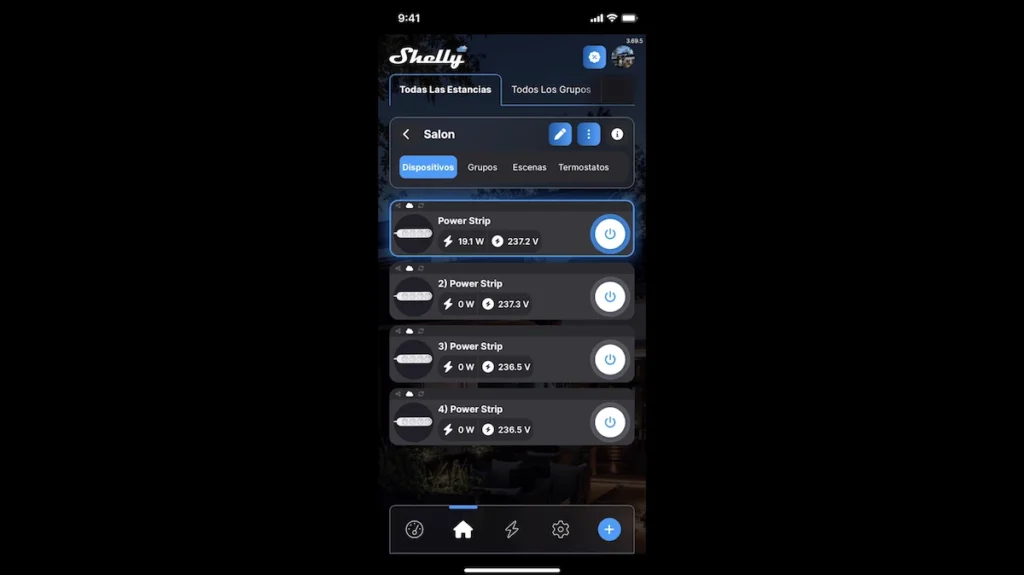
This means that even if you don’t have an internet connection, you will always have control of your Shelly devices from your phone at home. But, of course, the interest is also to be able to have control of your devices away from home, from your phone, if you have internet at home, and the Shelly App is free, so you don’t have to pay monthly fees.

To link your smart power strip, you must access the Shelly Smart Control App and, of course, you must have a previously created account with this App. The very interesting thing is that, when you connect to this App, it automatically detects the smart power strip.
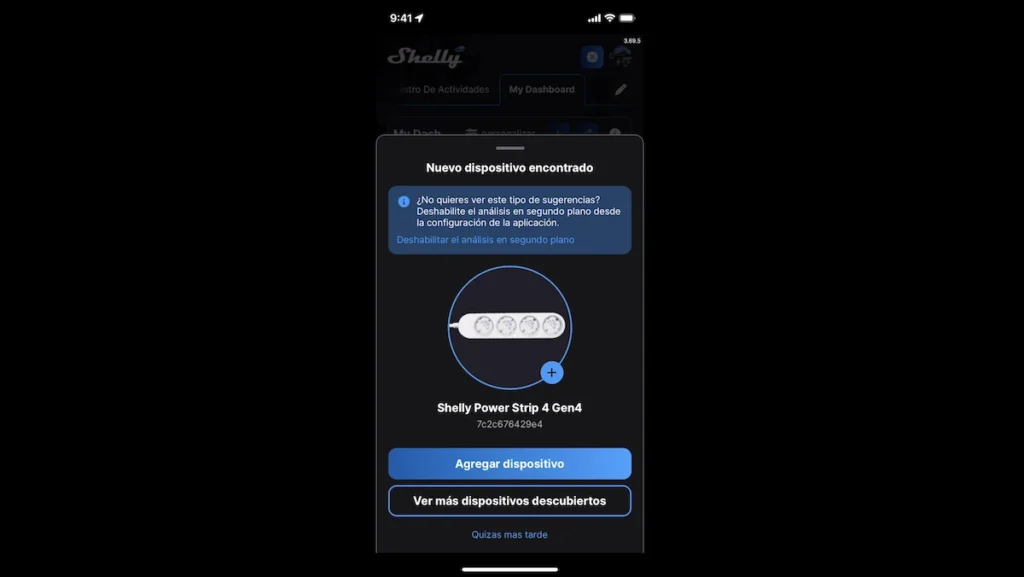
But we must confirm its association by indicating our WiFi network and password and following the instructions of our App.
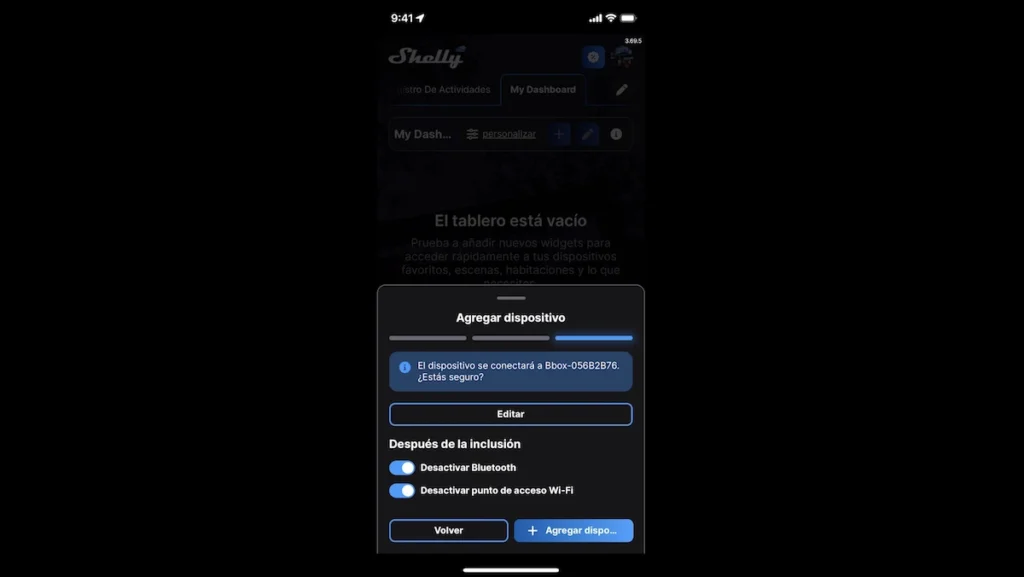
Ready, now we have control of our Shelly power strip, from our phone.
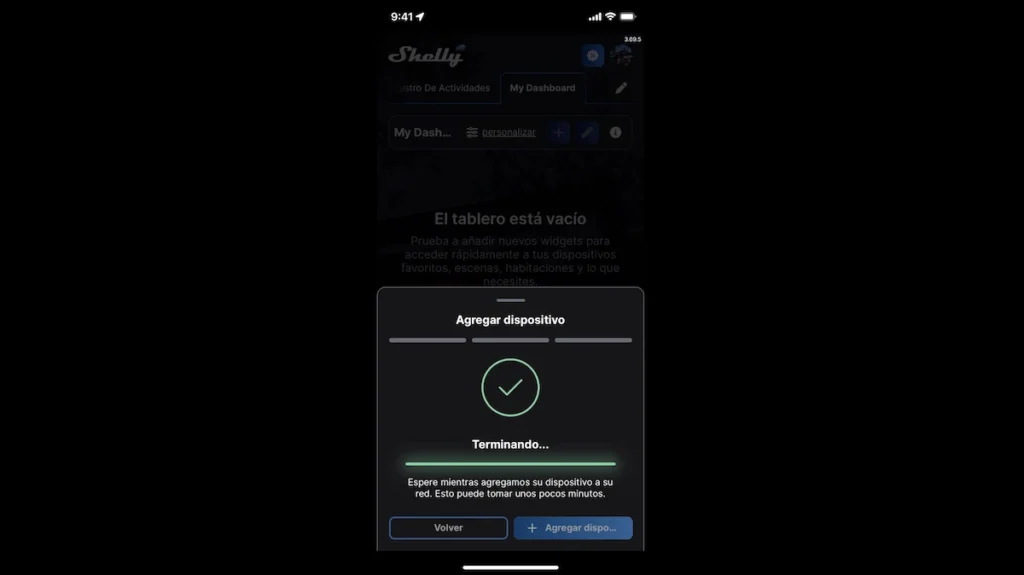
Of course, we have individual control of each socket and can see the consumption of each electrical device plugged in, in real time.

As we can see, depending on the consumption, the colour of the ring changes, with green being a low consumption and red a high consumption.
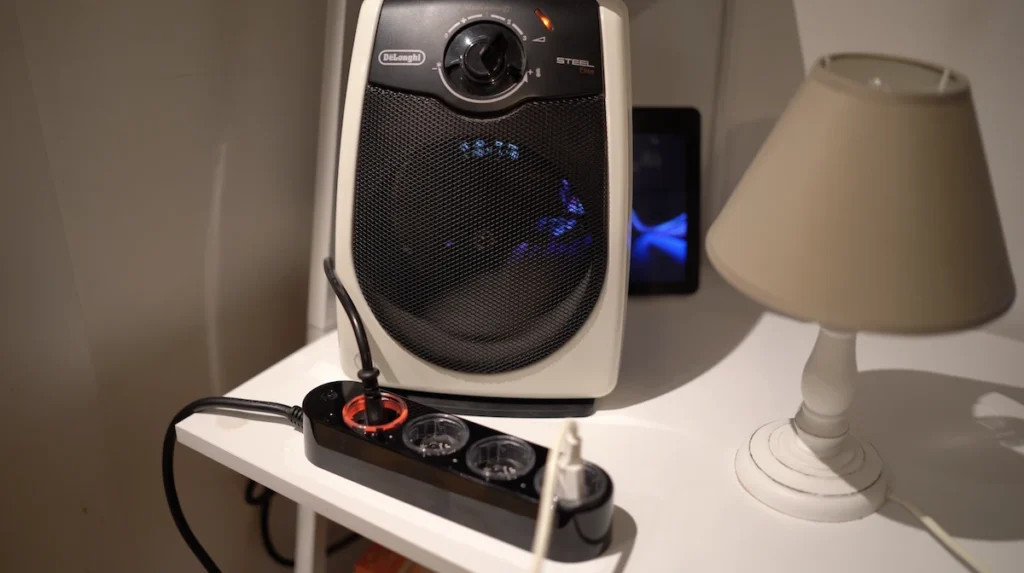
From the Shelly App, we can set a deactivation time.
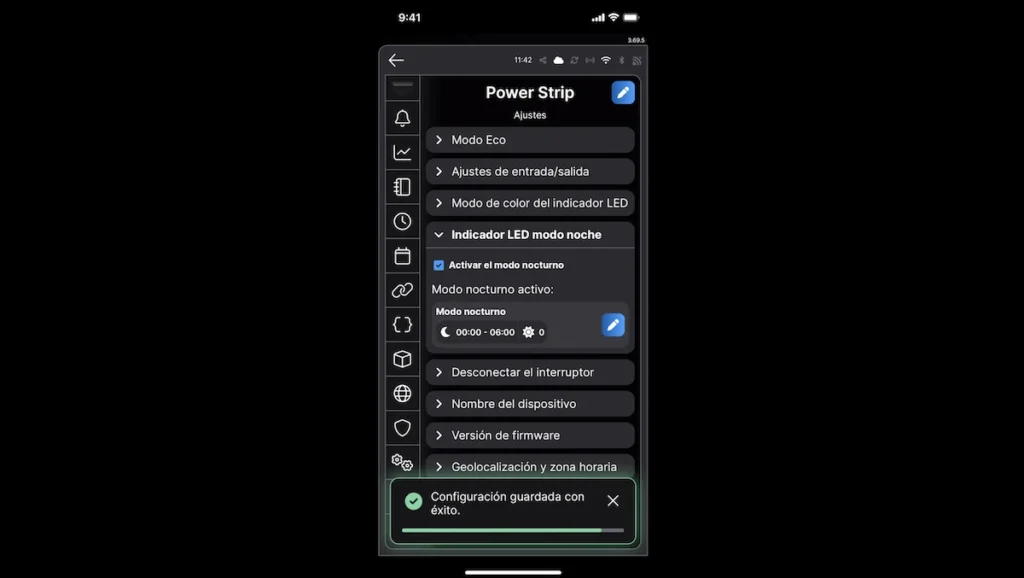
Or even deactivate these LEDs completely, if they disturb us, for example, especially at night.
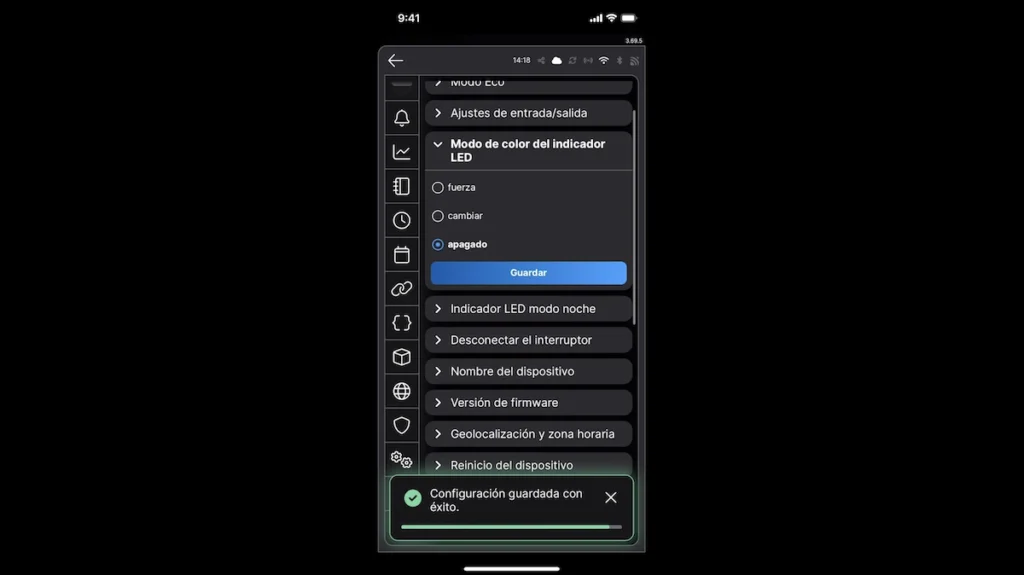
We also have the possibility to change the colours of these LED indicators.
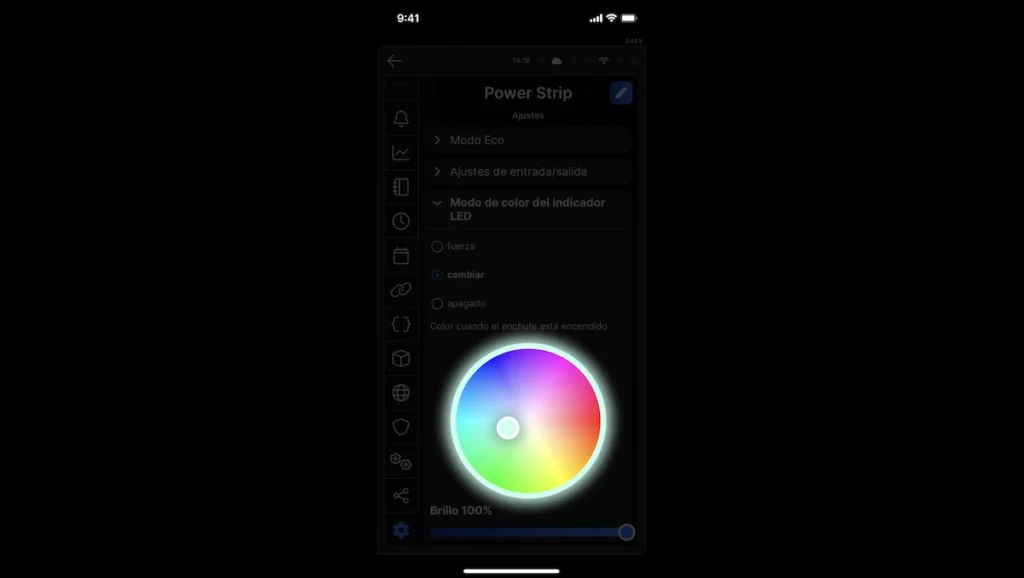
Another interesting detail is that we can set a maximum allowed power and, if our electrical device exceeds this power, then the plug is switched off, which is interesting in some contexts to avoid overconsumption.
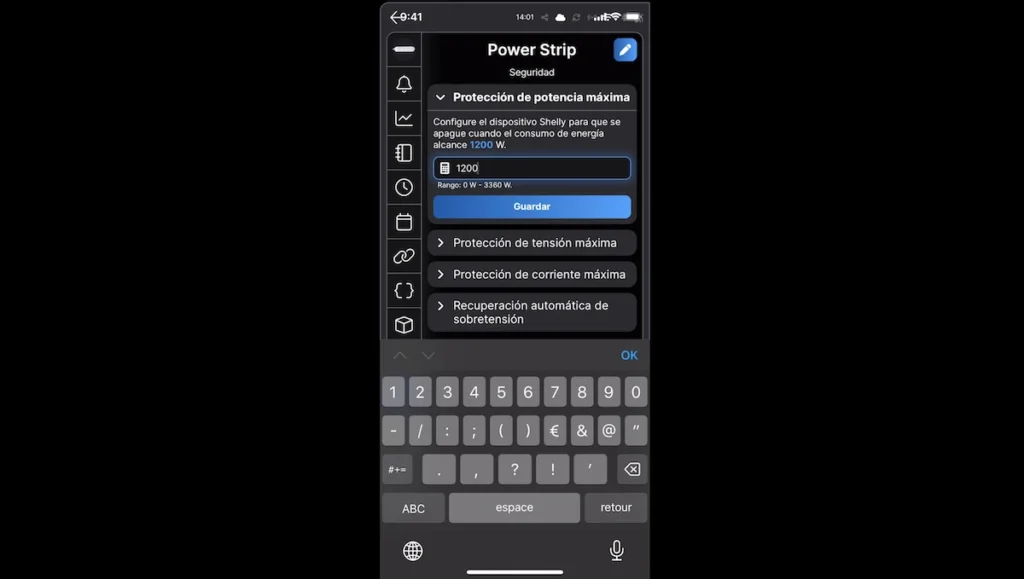
We will also receive an overpower detection message in the Shelly App.
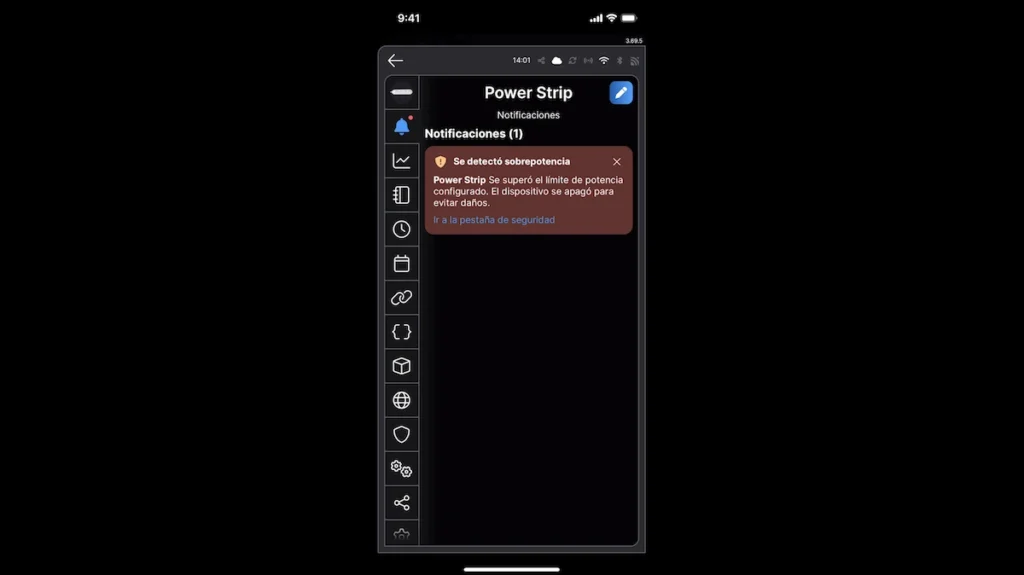
And an email.
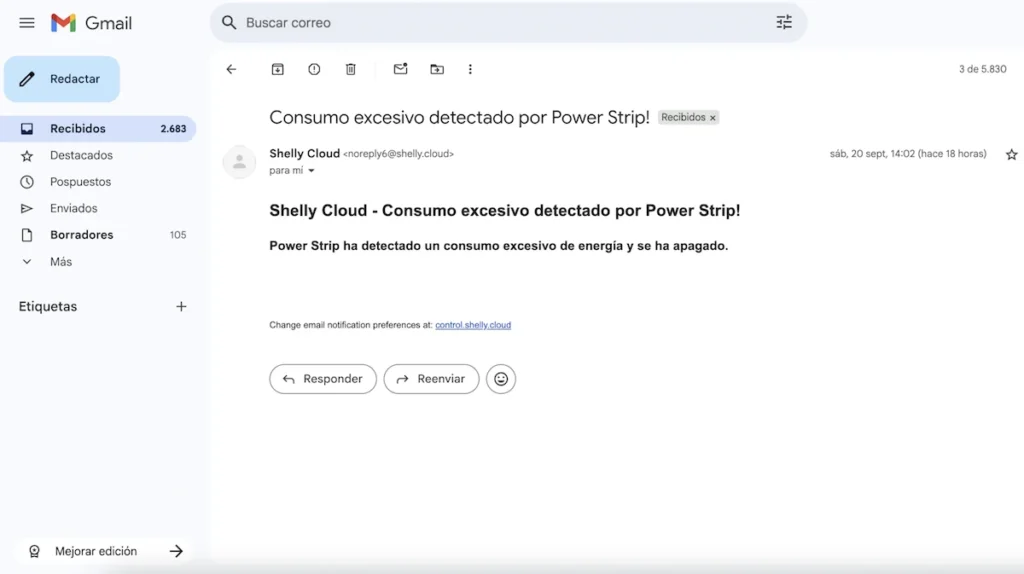
And, in addition to being able to track consumption in real time, it will also be possible to track consumption with a history over time.
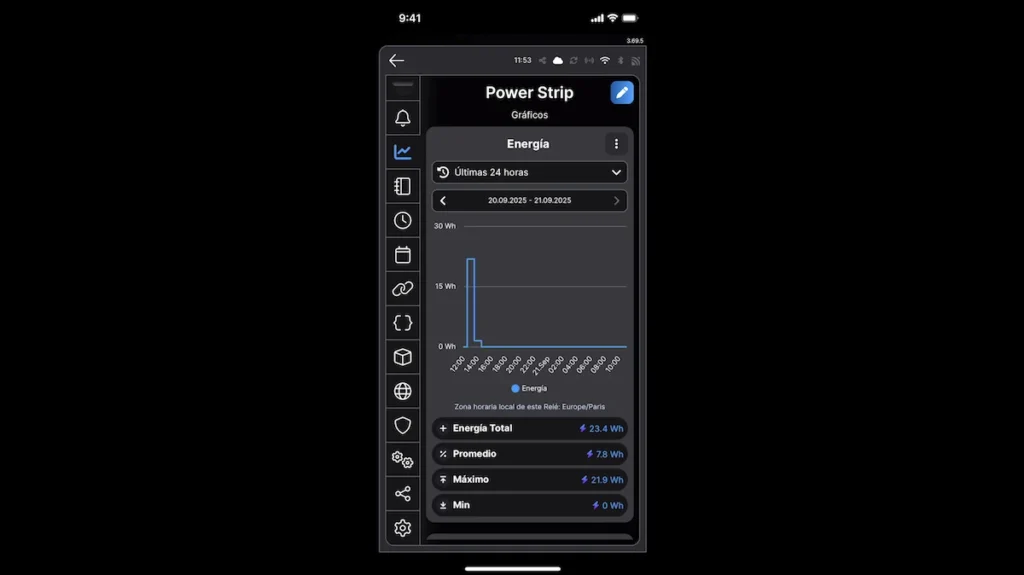
Another interesting detail of Shelly is that we can activate the WiFi repeater option, if we do not have sufficient WiFi range in areas of our home and we want to link other Shelly devices.
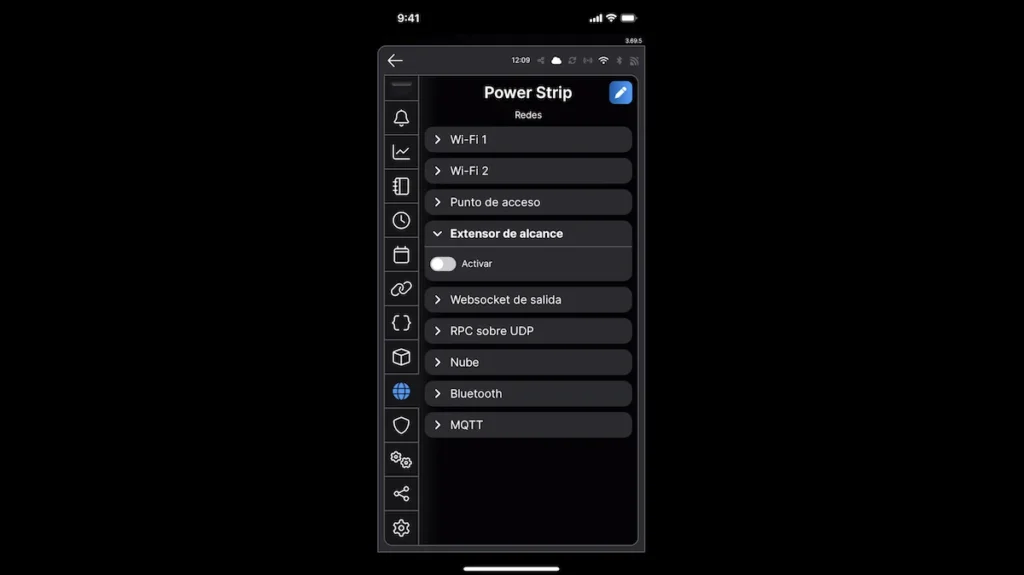
In terms of integrations, there are multiple options with Shelly.
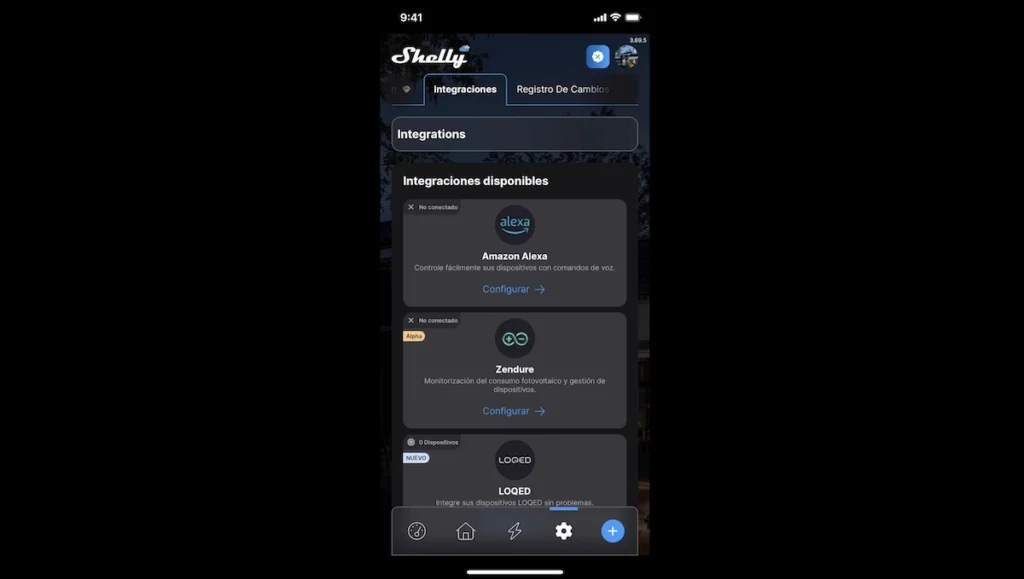
For example, if you want to link this smart power strip with voice assistants such as Amazon Alexa, simply link your Alexa account with Shelly.

And that’s it, you have voice control of each of the four sockets on the smart power strip. It is worth noting that Shelly indicates that this power strip is also compatible with Apple HomeKit, Google Home and SmartThings.
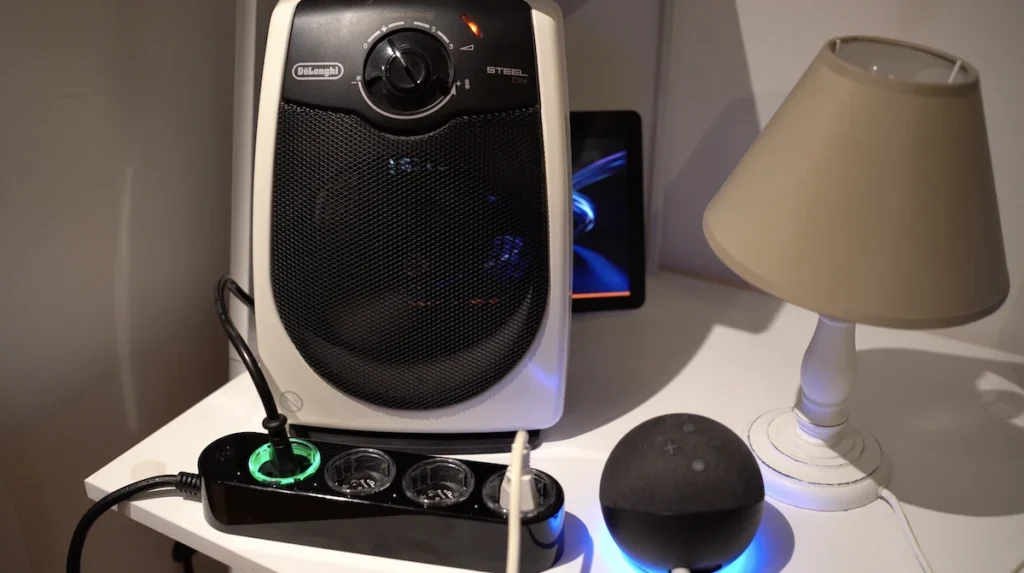
And from the Shelly App, we have the possibility to create schedules, scenes and scripts.
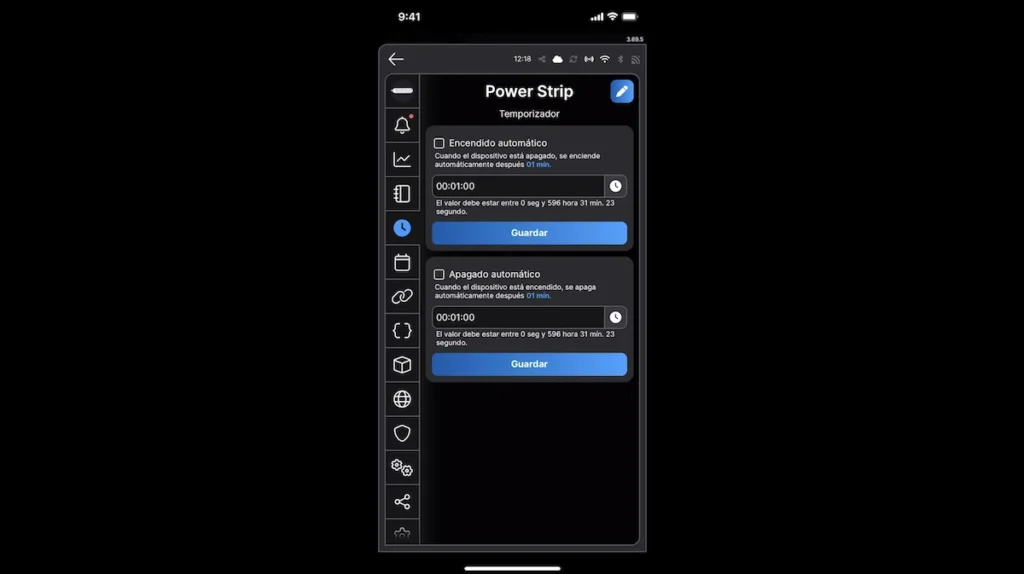
How to use the Shelly smart power strip by Matter
Also, being compatible with Matter, the new home automation standard that definitively unifies all ecosystems together, you will be able to control your smart power strip with any Matter compatible ecosystem such as Home Assistant, Google Home, Amazon Alexa, Apple HomeKit and much more.
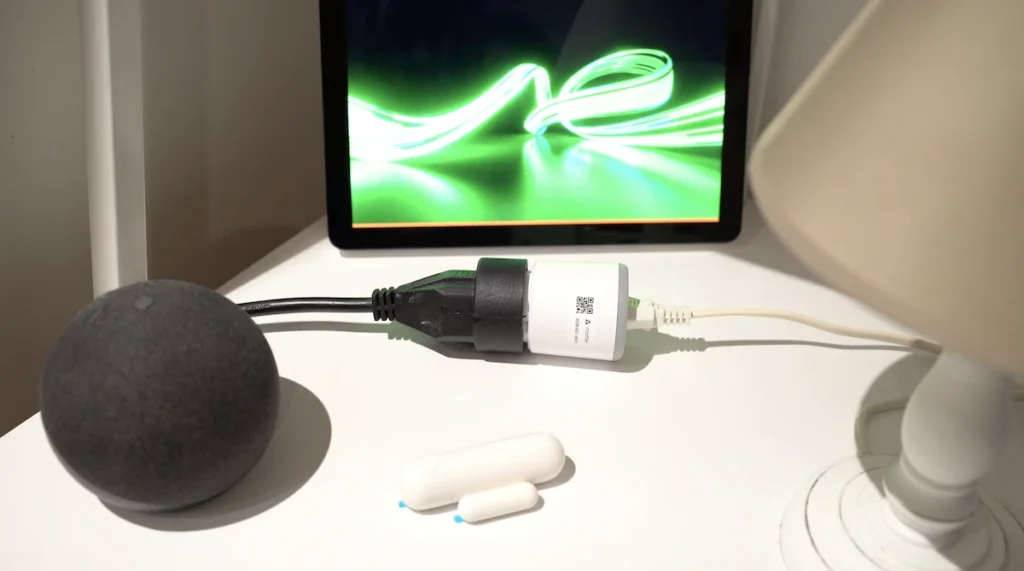
To do this, you must follow the Matter partnership process, usually by scanning a QR code that is included on the packaging.

How to use the Shelly smart power strip via Zigbee
To use this smart power strip in Zigbee, you must change the communication protocol, which is WiFi by default, and for this, you must press and hold button 1 of the power strip and press 5 times button 4 of this power strip.
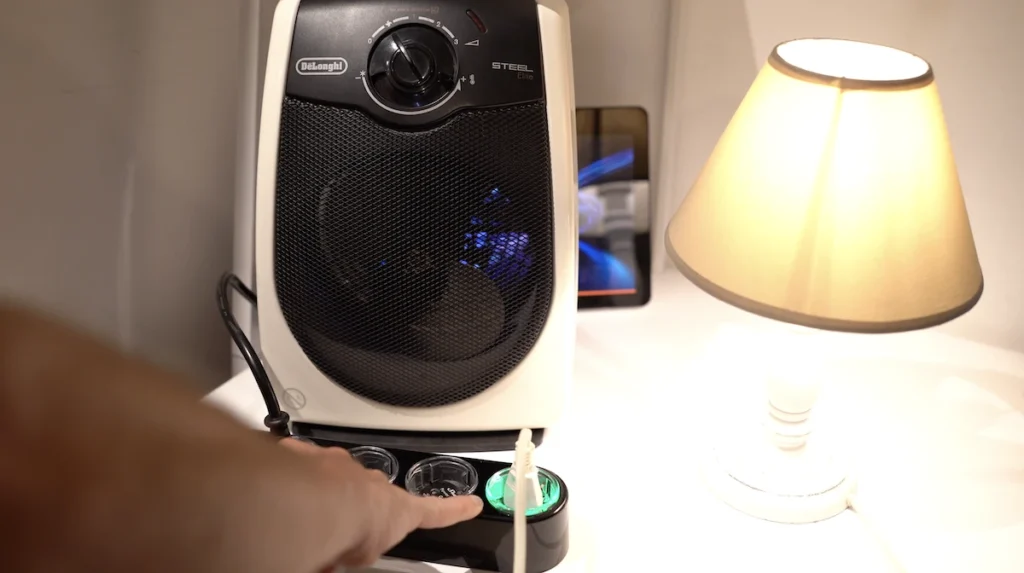
You must launch the inclusion mode of your Zigbee home automation hub.
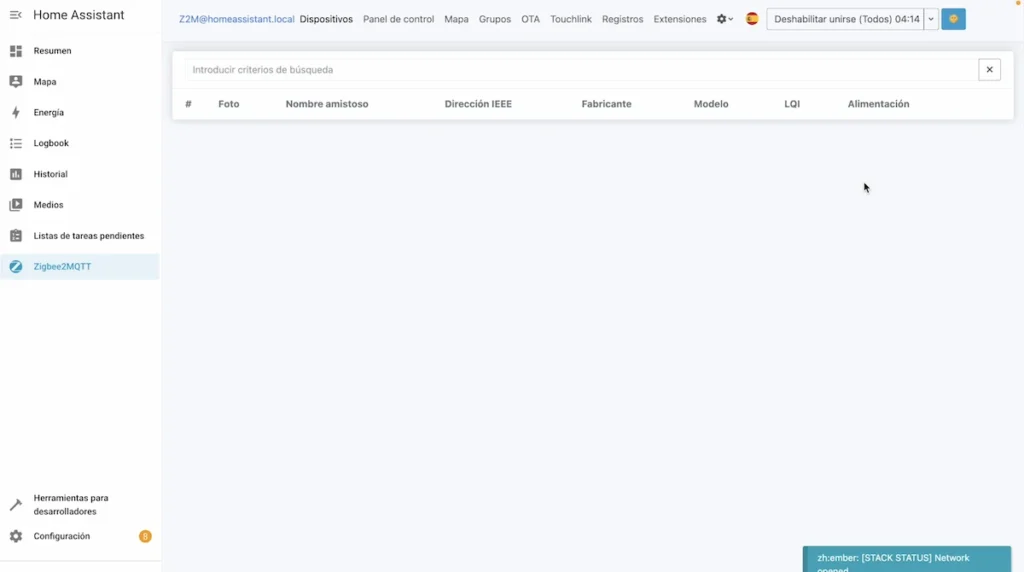
And that’s it, your Shelly power strip should automatically appear in the interface of this home automation hub. Of course, to use this power strip in Zigbee, it is always necessary to verify that your Zigbee hub is compatible and you should consider that, by default, nothing is compatible. In my case, I tested this Shelly power strip with one of the platforms that offers the largest list of device compatibility called Zigbee2MQTT, installed in Home Assistant.
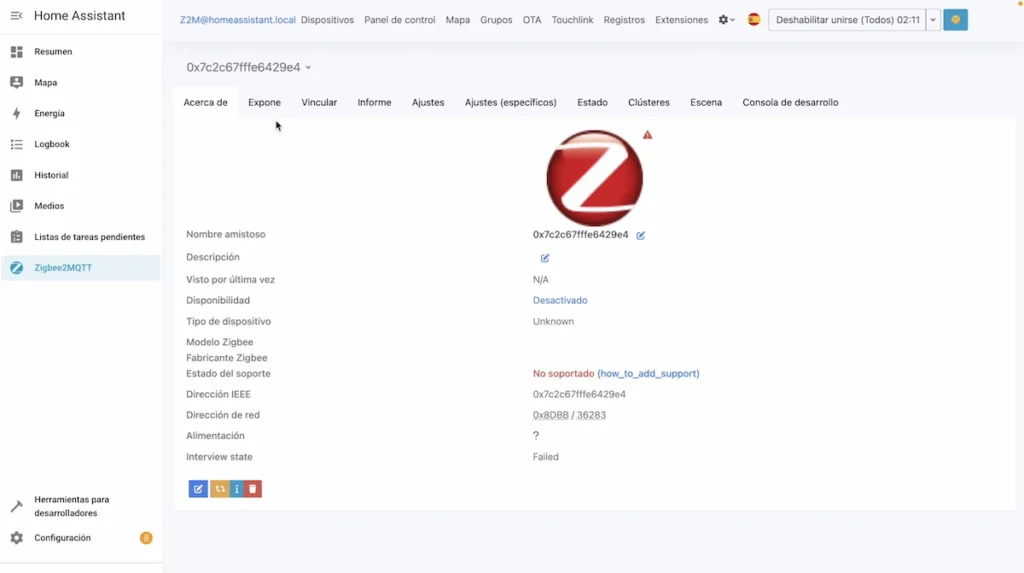
At the moment it is not compatible with my current version of Zigbee2MQTT, being 2.6.1, and this can happen with any Zigbee device if you have not previously verified its compatibility. For this, you have to go to the compatibility list in Zigbee2MQTT and you can filter by brand. As you can see, it does not appear in the compatibility list.
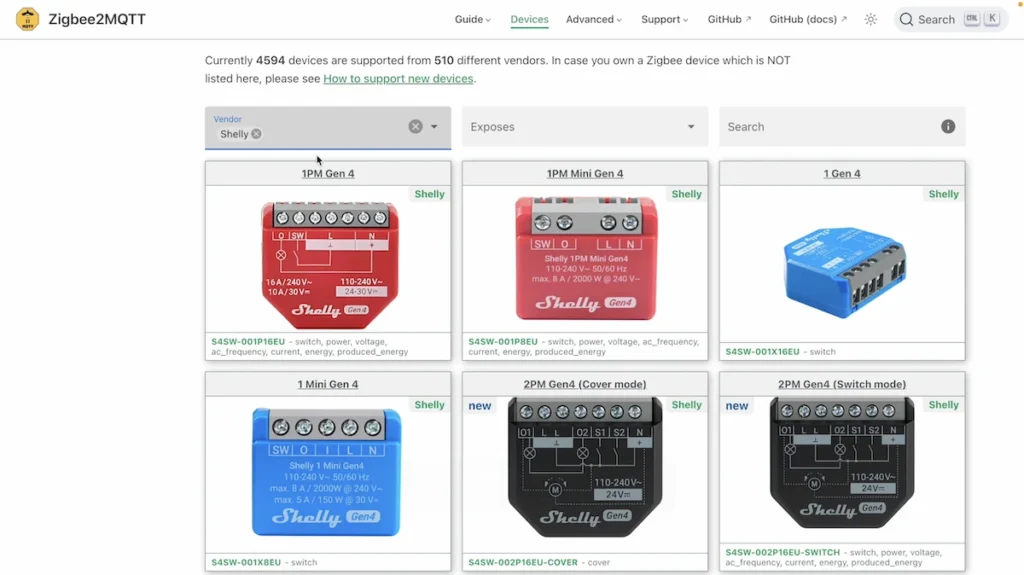
So we will have to wait, but it should be noted that this platform has a majority of compatible Zigbee devices, so this power strip, which has just been released, will surely be compatible very soon.
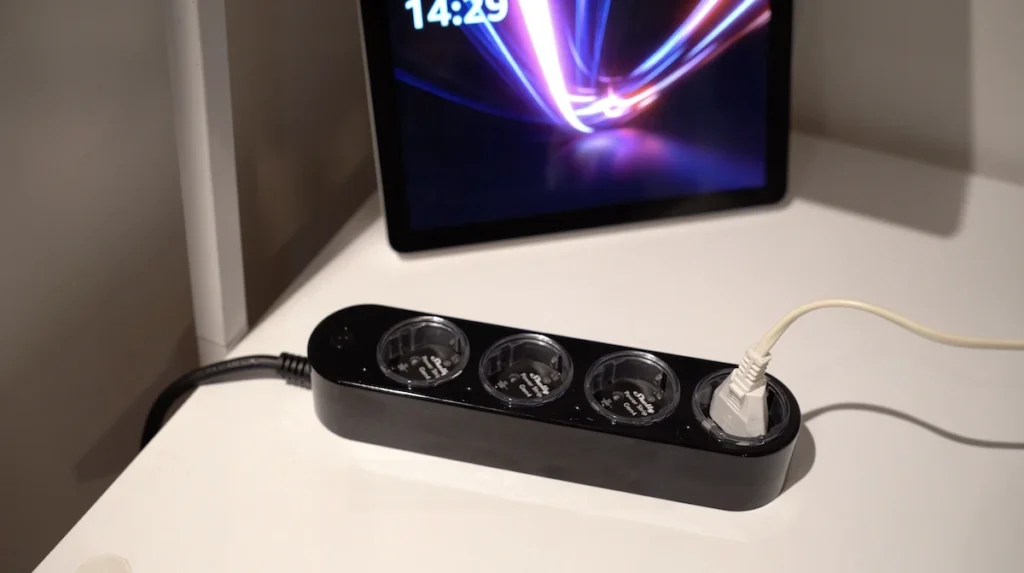
And when we see this power strip in the compatibility list, another practical detail would be to type in Google: “changelog Zigbee2MQTT” and go to the GitHub link that appears.
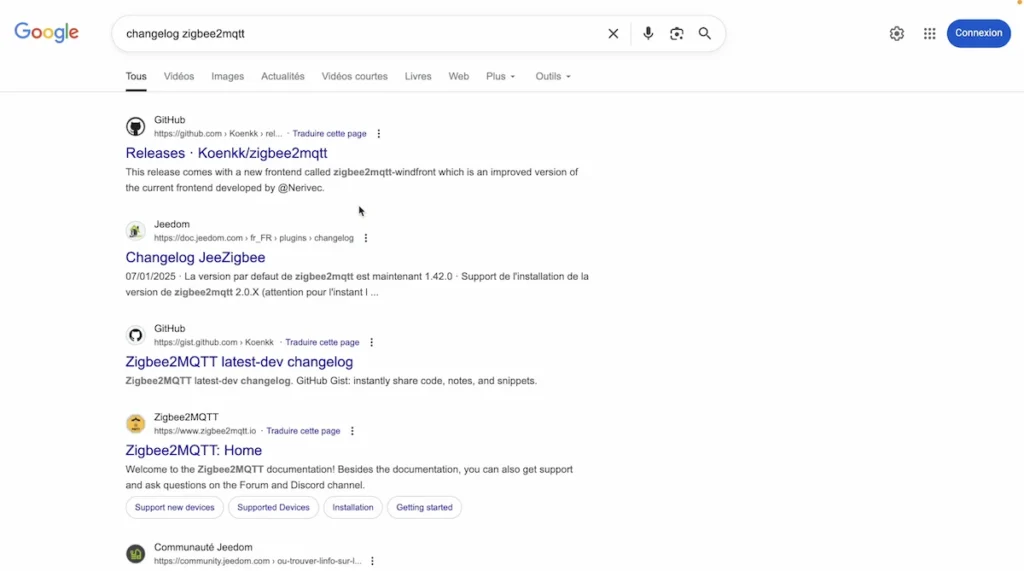
In this link, we will see all the details of new integrations, being able to search in which version of Zigbee2MQTT our power strip has been integrated.
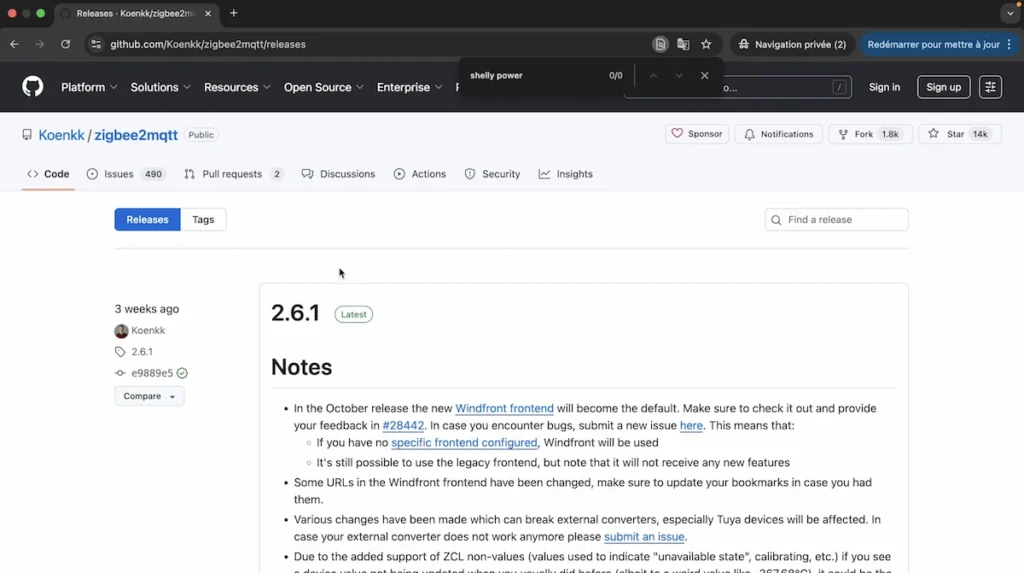
For example, if it has been integrated in version 2.7 and we have version 2.6, in this case, what we must do is to update our version, and having 2.7, we will have control of all the functions of this power strip integrated in Zigbee2MQTT.
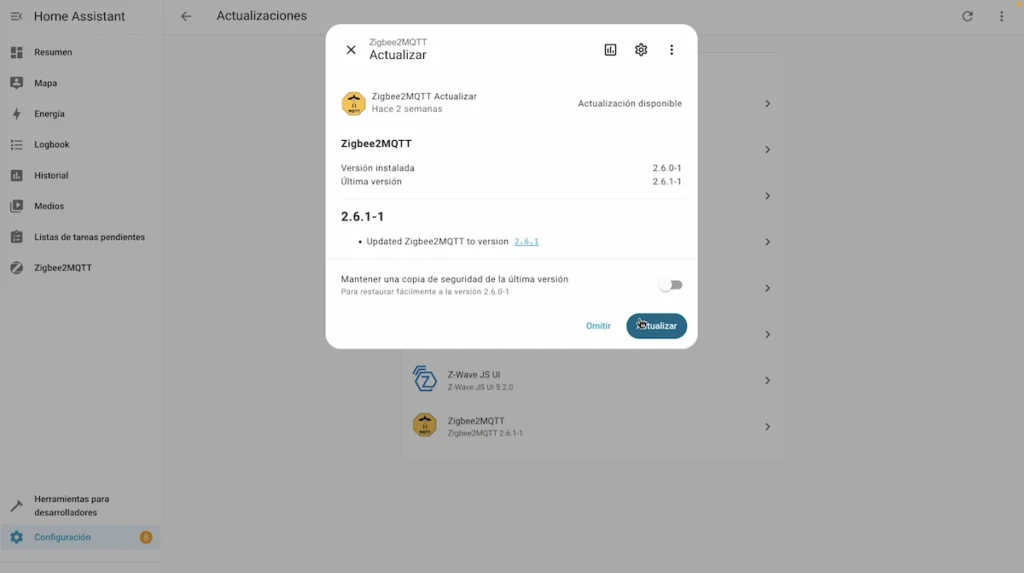
We will certainly have control of the individual sockets, the current and accumulated consumption of each socket, and other practical parameters such as the management of the LED indicator colours. And it should be noted that, in Zigbee, this power strip will also serve as a signal repeater in your Zigbee network.
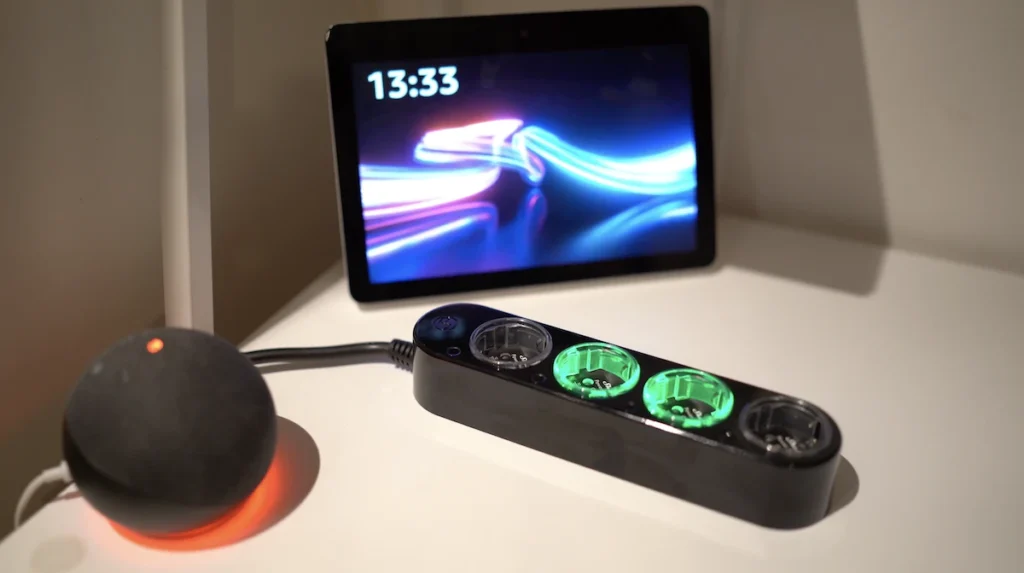
Automations with Shelly Power Strip Gen4
By being able to control 4 electrical devices plugged in, individually, and having energy consumption measurement for each device, we have multiple interesting use cases.
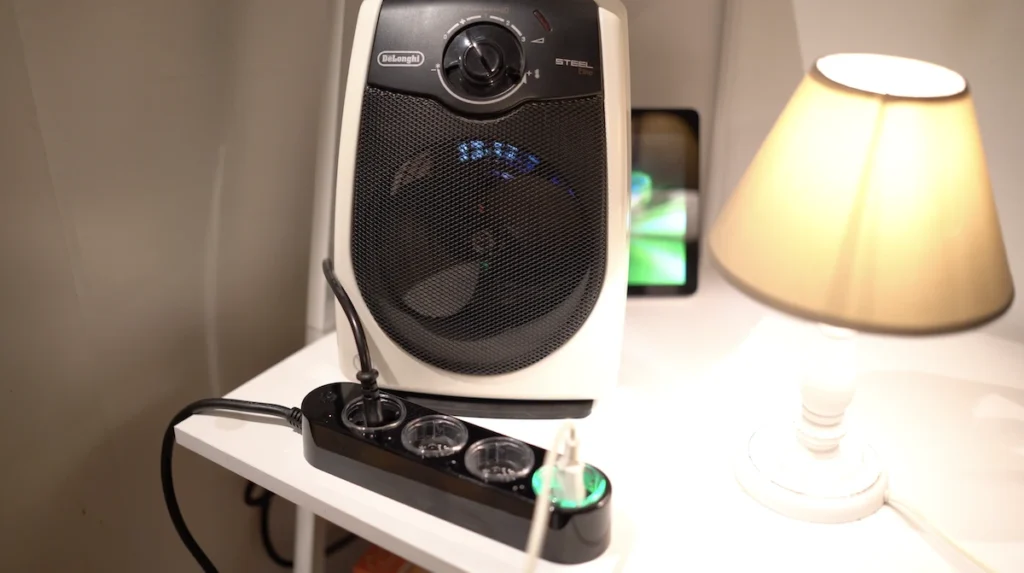
For starters, one automation idea would be to switch off plugged-in devices at night, so that they are not left on standby to save energy, such as a television and other multimedia devices, and we can decide to leave our internet router always on.
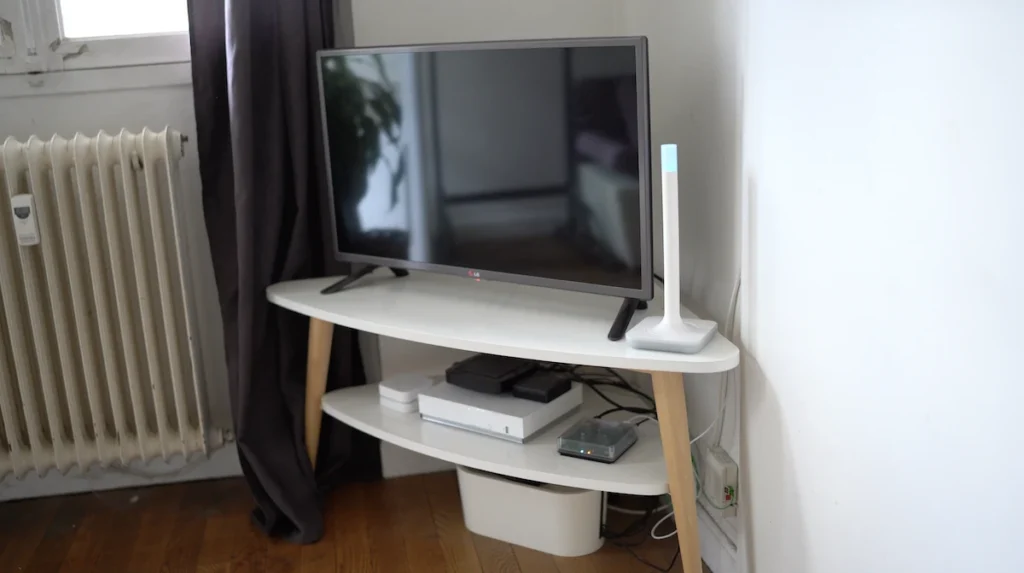
Another example would be to activate a socket for a defined period of time to charge a device and automatically deactivate it after this period, as in the case of a user we have seen in different contents who recharges his electric scooter for a defined period of time.
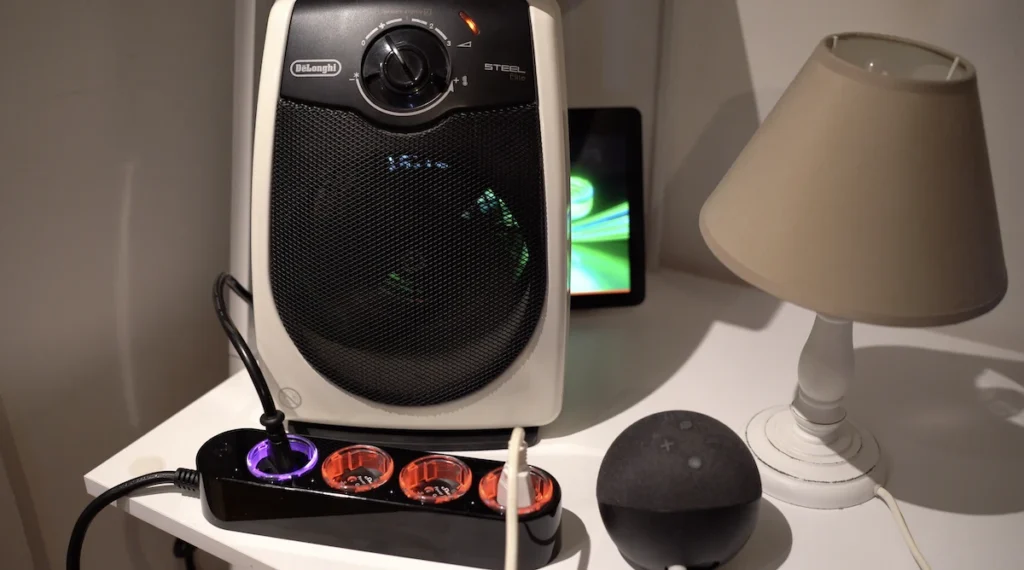
A final example would be to receive an alert on your phone in the event of abnormally high or low consumption of an electrical device that usually has a constant consumption, such as a fridge or freezer, and thus avoid problems of overconsumption or loss of food due to a fault.
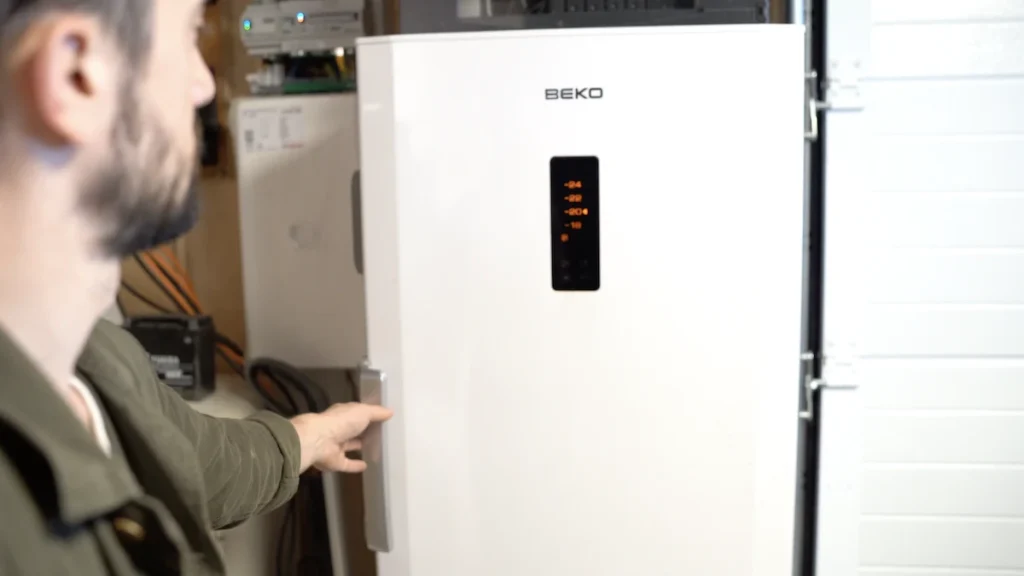
Your imagination is your limit. All in all, a smart power strip is an interesting device for a smart home project and this model proposed by Shelly is sure to be very popular.
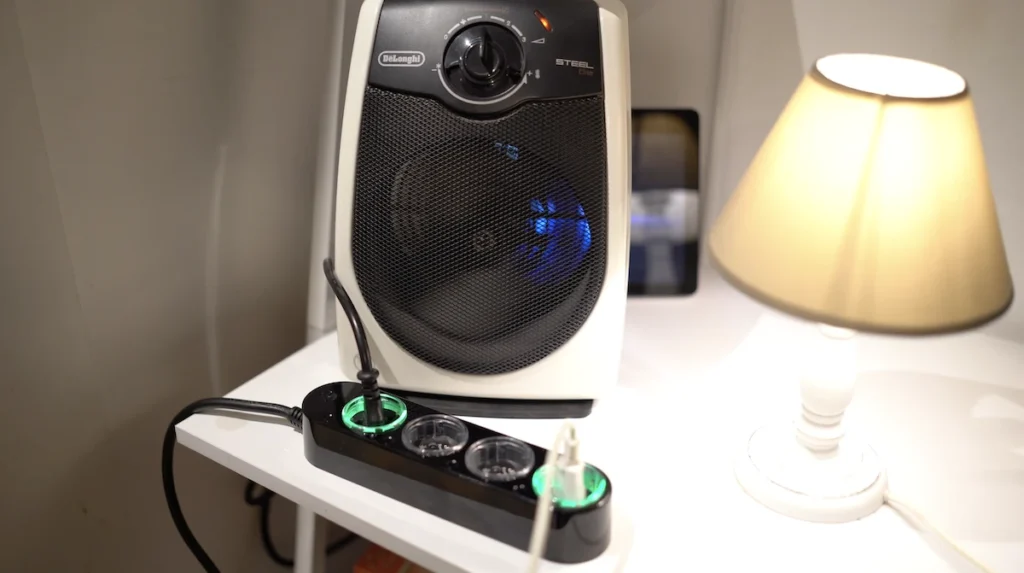
Generally purchased together
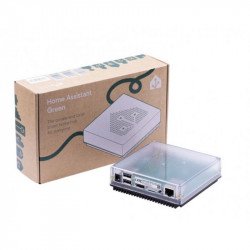
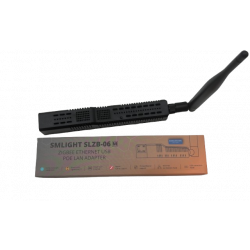
Buy now Shelly Power Strip Gen4


Graduated with a Higher Technician’s Certificate in Home Automation, a Professional Bachelor’s degree in E-commerce and Digital Marketing, and a Master’s degree in SEO, I have been working since 2013 in a home automation e-commerce company called Domadoo, where I have the opportunity to test a large number of the popular Smart Home products on the market.